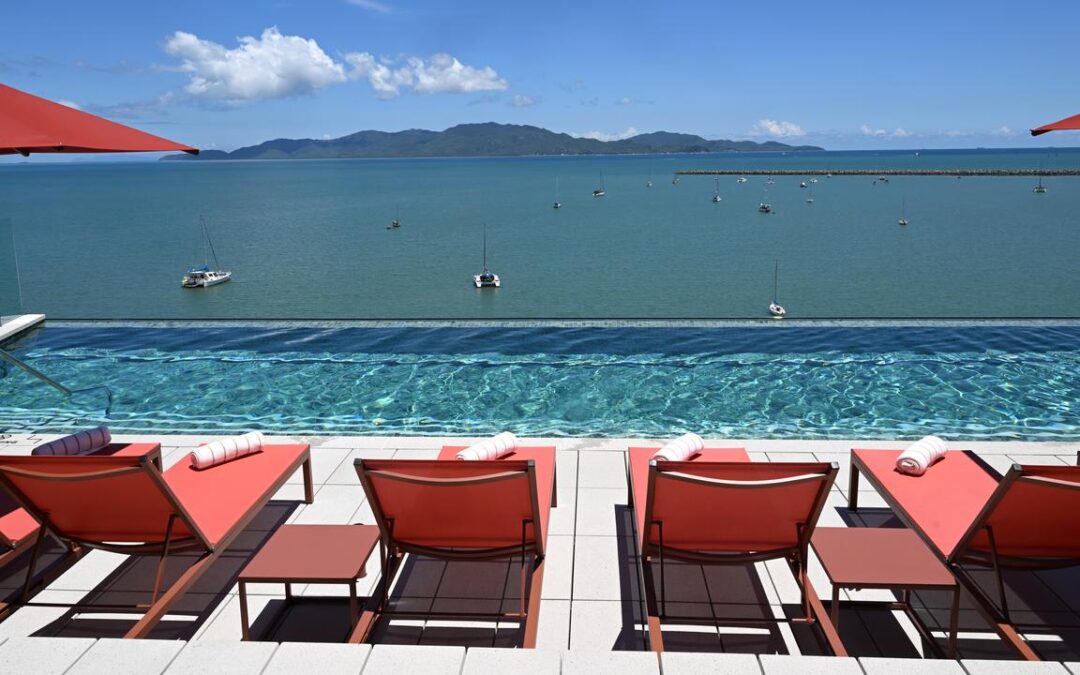
Instagram influencers are changing how we travel
Scrolling through Instagram, a sun-soaked beach in Byron Bay or a sweeping view over Uluru can spark more than just envy – it can change travel plans.
Social media influencers are not just inspiring wanderlust, they are tangibly shaping where and how people choose to travel, according to a new study.
“When influencer posts provide useful, factual information about destinations, they have the strongest impact on people’s desire to visit those places,” says author Naser Pourazad.
“The emotional appeal and engaging content also significantly influences whether people change their travel plans, want to purchase travel products or intend to visit destinations.
“Essentially, good information combined with compelling storytelling drives travel decisions.”
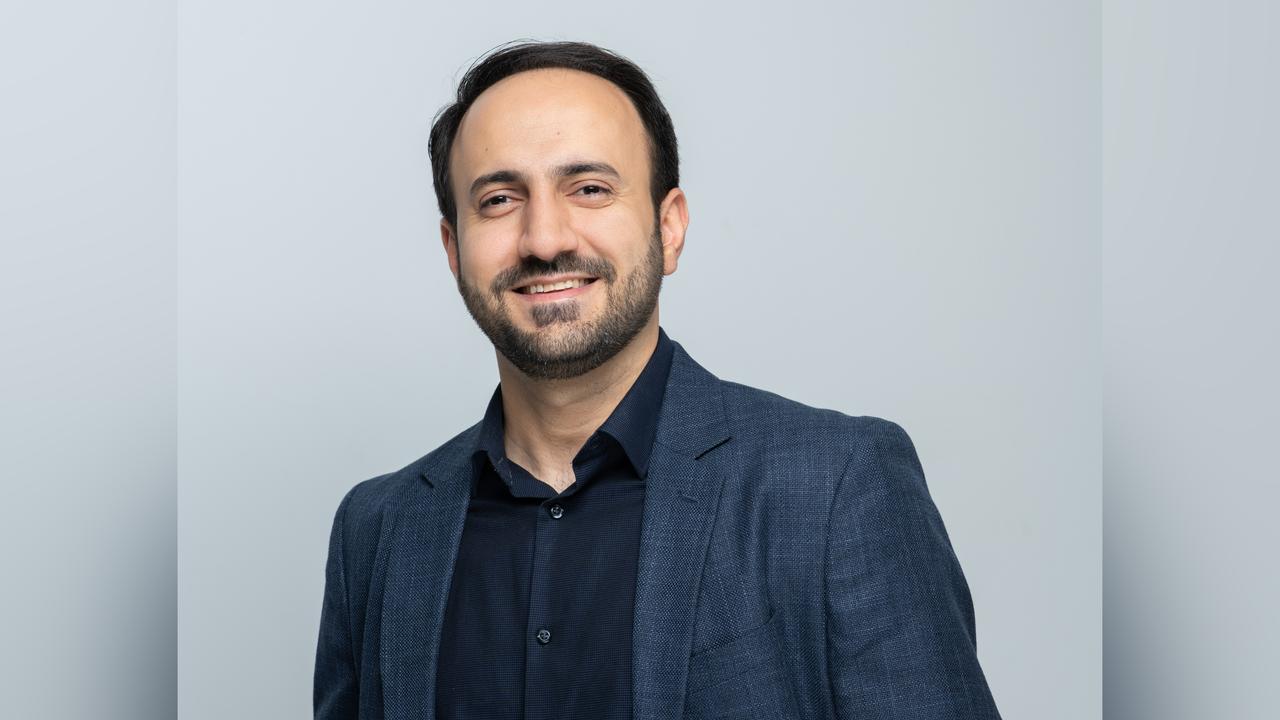
The study, published in the Journal of the Academy of Marketing Science, analyses how influencer content on Instagram affects people’s travel choices.
Using carefully created fake Instagram posts featuring real influencers Kane Vato and Elise Cook, Dr Pourazad and his team tested simulated posts across 10 Australian destinations including Uluru-Kata Tjuta National Park, Hobart, the Kimberley and Byron Bay.
The point wasn’t to crown a winner.
“We deliberately kept the visual style and captions similar across all destinations to focus on how influencers work rather than which destinations are more appealing,” he explains.
“Our research design was specifically set up to isolate the influencer effect rather than measure destination performance differences.”
That effect, the study shows, is both rational and emotional.
On one hand, audiences treat influencers as information sources – people to turn to when researching and comparing trips. On the other, they can trigger what Dr Pourazad describes as an “impulse-buying effect”.
“Our findings show influencers impact both deliberate research and spontaneous inspiration,” he says.
“People use them as information sources when planning trips and also get emotionally inspired by their content.
That dual role – research tool and source of spur-of-the-moment desire – explains why influencers remain so powerful even as audiences become more sceptical about paid promotions.
Dr Pourazad’s survey tested whether people were put off when they recognised posts as advertising.
“We measured whether people recognised content as advertising and surprisingly found it only slightly reduced purchase intentions and didn’t significantly affect people’s desire to visit destinations or change travel plans,” he says.
“Interestingly, whilst recognising sponsored content doesn’t directly hurt travel decisions, it seems to establish a baseline level of transparency that actually helps other persuasive factors work more effectively.”
Another surprise was what mattered least. Identification with influencers – that sense of “being like them” or wanting to emulate their lifestyle – had less impact than ‘informativeness’ or persuasion.
“Our study used established travel influencers with large followings (over 100,000 followers each) but didn’t compare different sizes or types of influencer accounts,” Dr Pourazad notes.
“We focused on understanding the basic psychological mechanisms rather than examining how different influencer characteristics might change these effects, so we can’t say whether smaller or larger accounts would work differently.”
Controlling the experiment by using the fake posts meant eliminating the noise of trends, hashtags or viral moments and drilling down to the psychology of persuasion.
“Rather than looking at real-world examples of destinations becoming popular through Instagram, we focused on understanding the underlying psychology of how and why influencer content persuades people to travel,” he says.
It’s not just influencers shaping travel choices – popular culture is also having an impact.
Just as the latest season of Amazon’s The Summer I Turned Pretty was released, searches for Paris travel spiked.
Research by GamingGadgets.io found online searches for Flights to Paris jumped 260 per cent within 24 hours of the show’s ninth episode airing, while ‘Travel to Paris’ queries spiked 773 per cent.
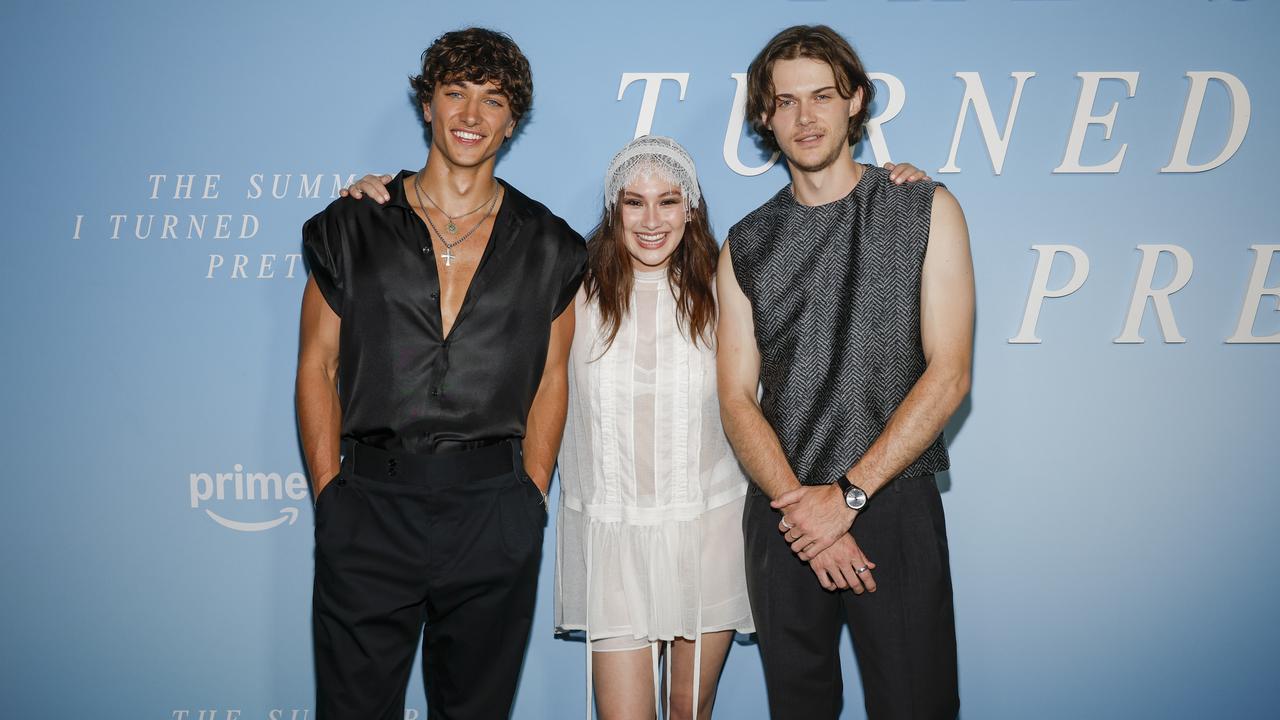
These popular methods of holiday research may be assisting some Australians who appear to be going to great lengths to find destinations off the beaten track.
A separate survey commissioned by travel insurer Insure&Go found 66 per cent of Australians over 50 plan to seek out quieter, lesser-known destinations in the next two years, citing rising costs and over tourism as the main deterrents to visiting the world’s most popular hotspots.
Sixty per cent of respondents overall said they are less inclined now than five years ago to travel to iconic destinations like Rome, Tokyo or Phuket.
Two-thirds of over-50s will actively seek out alternatives and nearly a quarter say they will bypass tourist hotspots altogether.
“Our research indicates many travellers are done with crowds and queues,” says David Mayo, Commercial and Marketing Director at Insure&Go.
“There is a growing appetite for destinations that offer rich experiences but without the anxiety associated with congested sights and the fear of missing out in those scenarios.
Australians are now looking to places where they can holiday at a slower pace, immerse themselves in culture and stretch their budget further.”
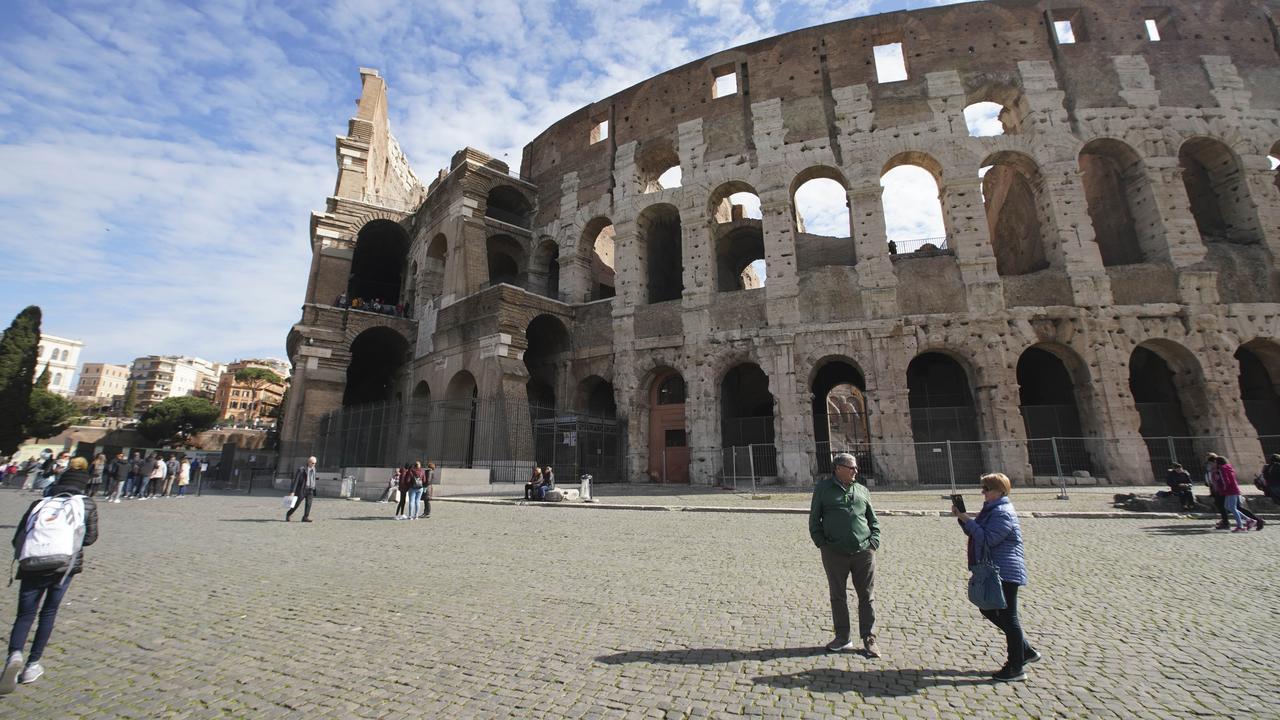
When asked which alternatives most appealed, 51 per cent of respondents said small towns with a rich cultural heritage – places such as Matera in Italy, Ronda in Spain or Kotor in Montenegro.
Remote nature destinations followed at 43 per cent, while 42 per cent preferred lesser-known beach getaways.
The findings suggest a shift away from “bucket list” tourism and towards more meaningful, personal experiences.
“Our research indicates that travel, for many, is no longer about ticking off iconic sights but rediscovering the joy of discovery itself,” Mr Mayo says.
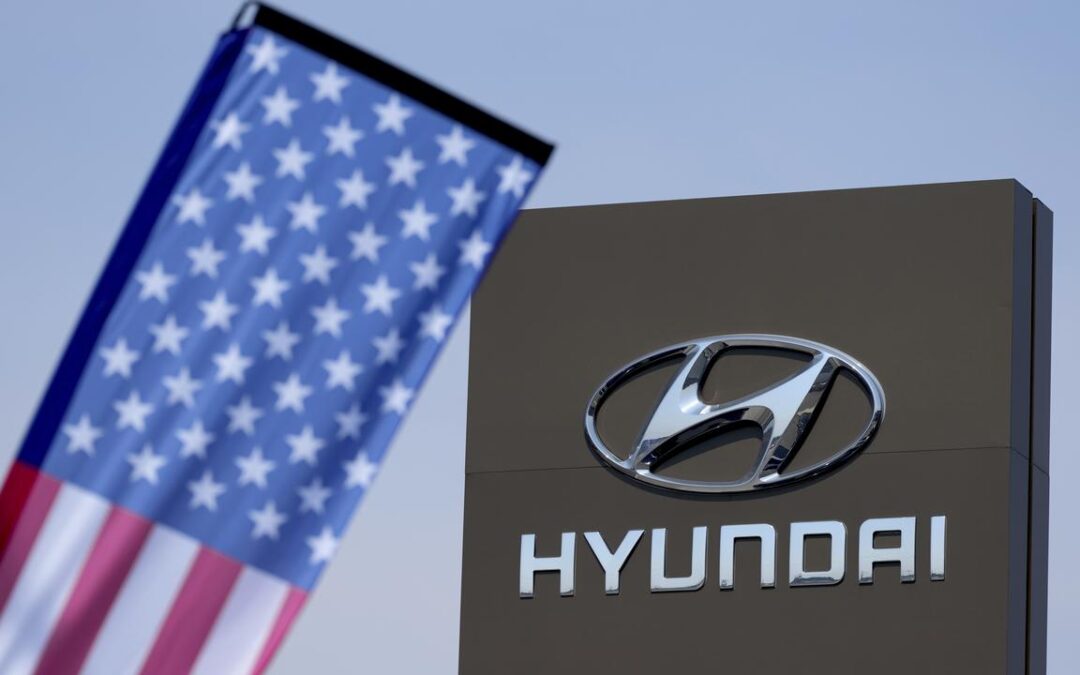
US immigration agents arrest 475 in Hyundai plant raid
Hundreds of workers at a Hyundai Motor car battery facility under construction in the US state of Georgia have been detained in a major raid by authorities, stopping work on a plant that is one of the South Korean car maker’s major investments in the United States.
About 475 workers were arrested, according to US immigration officials, the largest single-site enforcement operation in the US Department of Homeland Security’s (DHS) history.
President Donald Trump’s administration has been escalating a crackdown on immigrants, disrupting businesses around the country, even as the White House has encouraged more inflows from foreign investors.
The US and South Korea have been at odds over the details of a trade deal that includes $US350 billion ($A535 billion) of investments.
At a summit last month, South Korea pledged $US150 billion in US investments – including $US26 billion from Hyundai Motor.
Homeland Security officials said the workers arrested at the Ellabell, Georgia site were barred from working in the US after crossing the border illegally or overstaying visas.
The investigation took place over several months, Steven Schrank, special agent in charge of investigations for Georgia, said during a press briefing.
“This was not an immigration operation where agents went into the premises, rounded up folks and put them on buses,” he said.
Schrank said there was a network of subcontractors on the site; a Hyundai Motor spokesperson said none of the people detained were employed directly by the car maker, which complies “with all laws and regulations wherever we operate”.
The workers were being held at ICE’s Folkston, Georgia detention facility, Schrank said.
Most of the 475 people are South Korean citizens, he said.
A spokesperson at Hyundai’s battery joint venture partner, South Korean battery maker LG Energy Solutions, said in a statement it was co-operating and had paused construction work.
The facility, a joint venture between LGES and Hyundai Motor, was due to start operations at the end of this year, according to LGES.
The White House said on Friday that “any foreign workers brought in for specific projects must enter the United States legally and with proper work authorisations.”
South Korea’s Foreign Ministry expressed regret and concern about the raid.
“The economic activities of our companies investing in the United States and the interests of our citizens must not be unduly violated during the course of US law enforcement,” ministry spokesman Lee Jae-woong said in a statement on Friday.
Social media video showed a man wearing a vest with the letters HSI, an acronym for Homeland Security Investigations, telling workers in yellow safety vests: “We have a search warrant for the whole site. We need construction to cease immediately. We need all work to end on the site right now.”
The US Department of Justice in a statement said several people tried to flee during the raid.
Some had to be fished out of a sewage pond on the site, DOJ said.
Hyundai said its production of electric vehicles at the sprawling site was not affected.
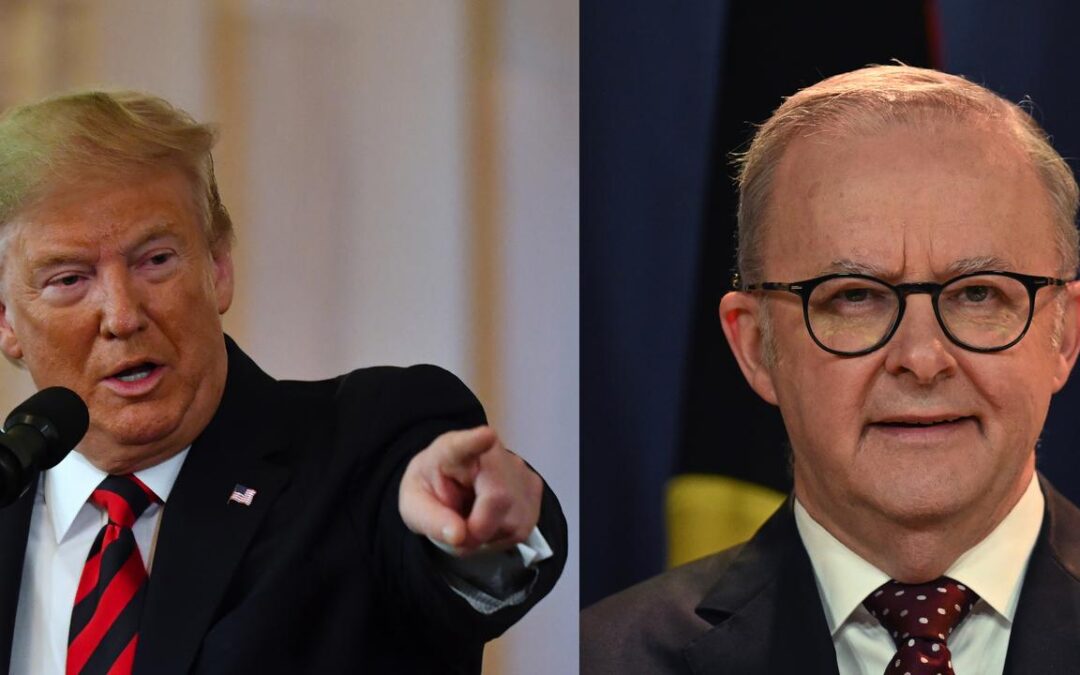
PM dials in on elusive Trump meeting after latest call
A fourth phone call between the prime minister and the US president could bring Anthony Albanese a step closer to meeting Donald Trump in person, analysts say.
Almost a year into Mr Trump’s second term in office, Mr Albanese has struggled to organise face-to-face talks with the Republican leader, after a planned meeting in Canada in June was cancelled at the last minute because of escalating Middle East tensions.
United States Studies Centre director of research Jared Mondschein says it appears the two will sit down on the sidelines of the United Nations “leaders’ week,” which starts on September 22.
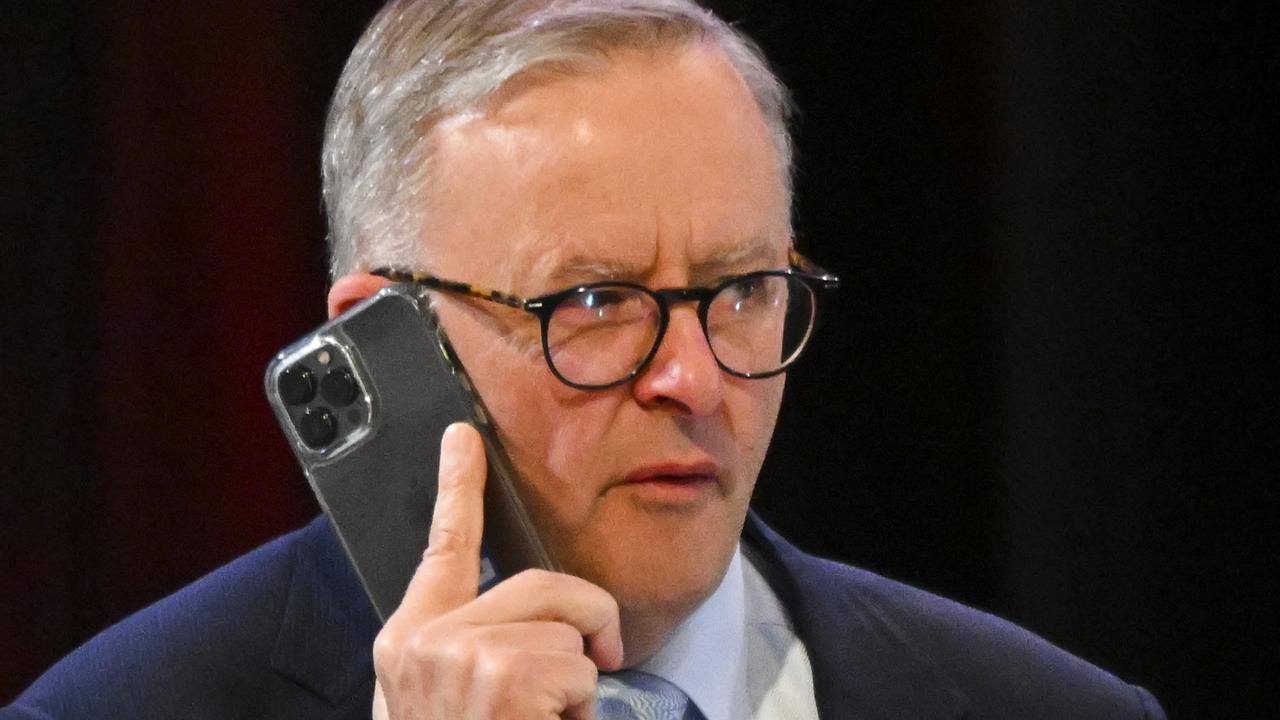
“Especially with this administration, the personal really goes a long way … so I think it is something that the prime minister does want to focus on,” he told AAP.
A readout of the call released by Mr Albanese’s office said the two leaders discussed trade and critical minerals – a conversation Mr Mondschein said was “timely,” as China restricts exports of metals such as lithium and cobalt.
China dominates global production of critical minerals, which are used in products such as electric cars, solar panels and some defence technologies.
Australia, which has massive underground reserves, hopes to break China’s stranglehold.
“There are really no allies closer than the United States and Australia, and there are also no allies that have the same access to critical minerals … as the US and Australia,” Mr Mondschein said.
There was no mention of the AUKUS nuclear submarine deal in the Australian readout, but the government insists the military agreement with the US and UK will go ahead, despite the White House’s decision to review it.
“It is on schedule, and we are really confident about its progress,” Defence Minister Richard Marles told reporters in Tokyo after meetings with Japanese officials.
In a post on X, Australia’s Ambassador to the United States Kevin Rudd said the relationship between Australia and the US was going from “strength to strength.”
The opposition has long criticised Mr Albanese’s failure to secure a meeting with Mr Trump.
“It’s been more than 300 days since the US election, yet the prime minister has not secured a face-to-face meeting with the president, who has already met with over 30 other world leaders,” opposition trade spokesman Kevin Hogan said.
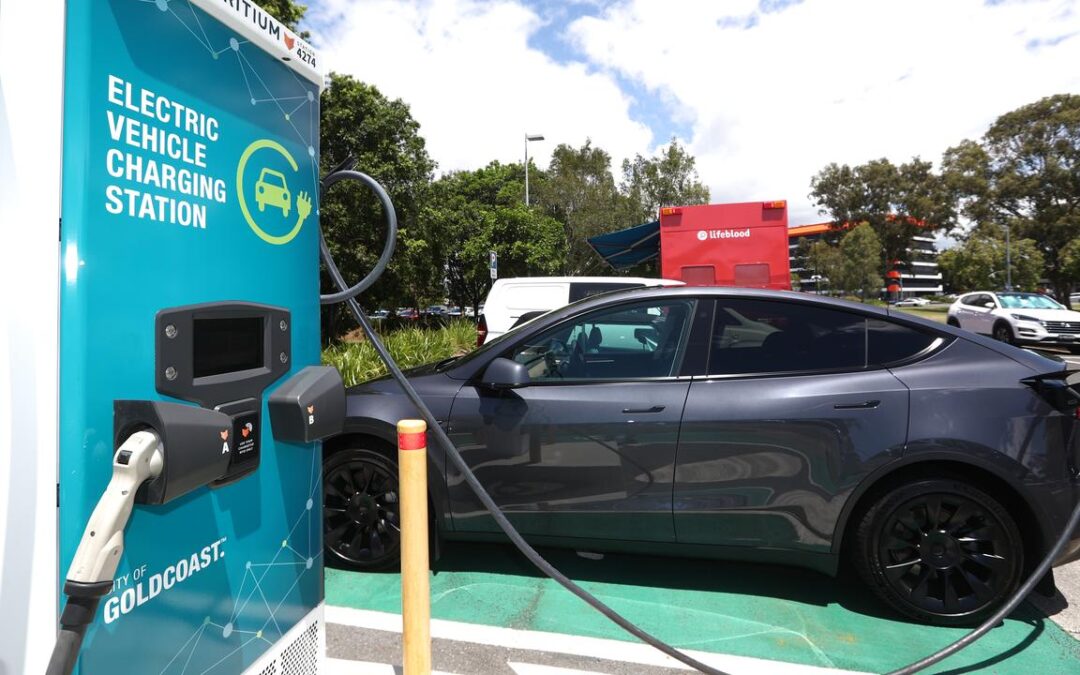
Electric road fees push sparks-up to plug fuel tax gap
Reforms to make electric vehicle users pay their fair share of road maintenance costs should not discourage drivers transitioning away from petrol cars, the treasurer says.
Jim Chalmers held talks with his state and territory counterparts at a meeting of treasurers on Friday, where a proposal to implement a road user charge for EV drivers was on the agenda.
In a joint statement, Dr Chalmers said all governments needed to work together to introduce changes as the number of EVs on the road rose.
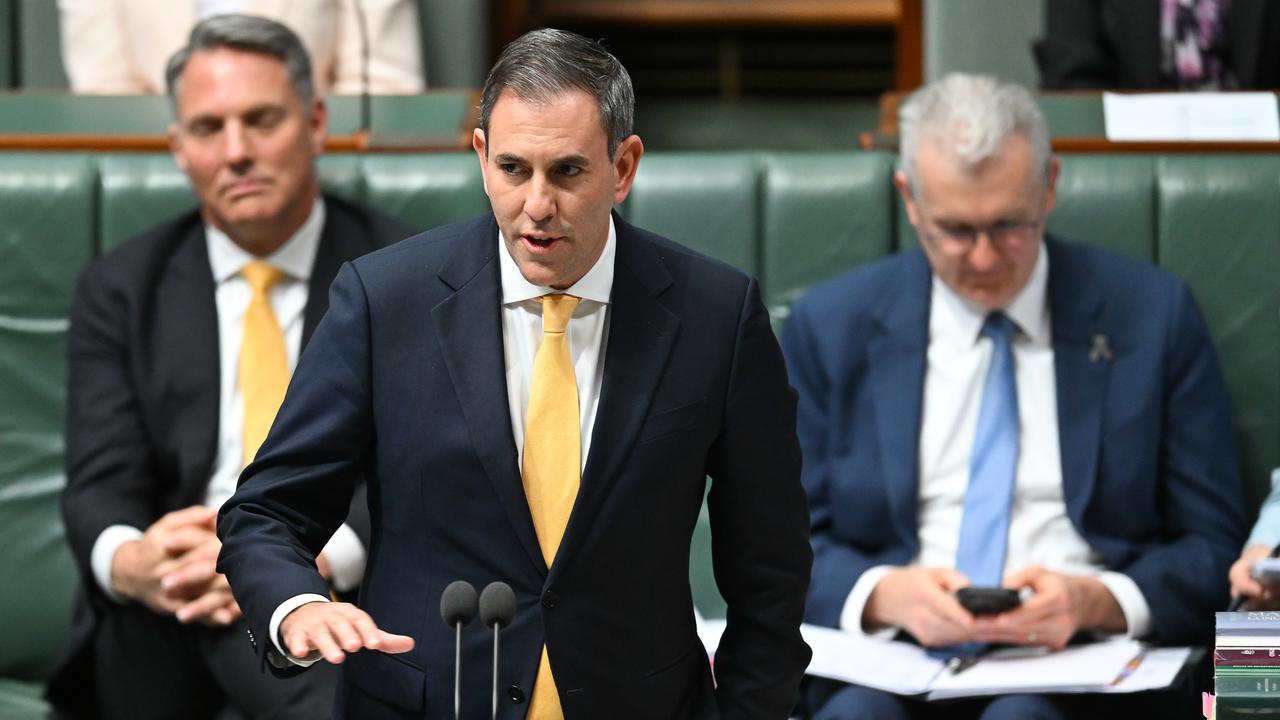
“Reforms should be designed to not deter the continued take-up of electric vehicles,” he said.
“The reforms to the treatment of electric vehicles will ensure more equitable treatment across vehicle types and provide certainty to support investment.
“The design of reforms should be as simple as possible and minimise administration and compliance burden.”
Road user charges had been floated as an area of reform because fewer drivers were paying an excise on fuel, which was then designated to road maintenance.
Dr Chalmers had previously ruled out applying a road user charge to all motorists because that would mean drivers of petrol and diesel cars would be double taxed.
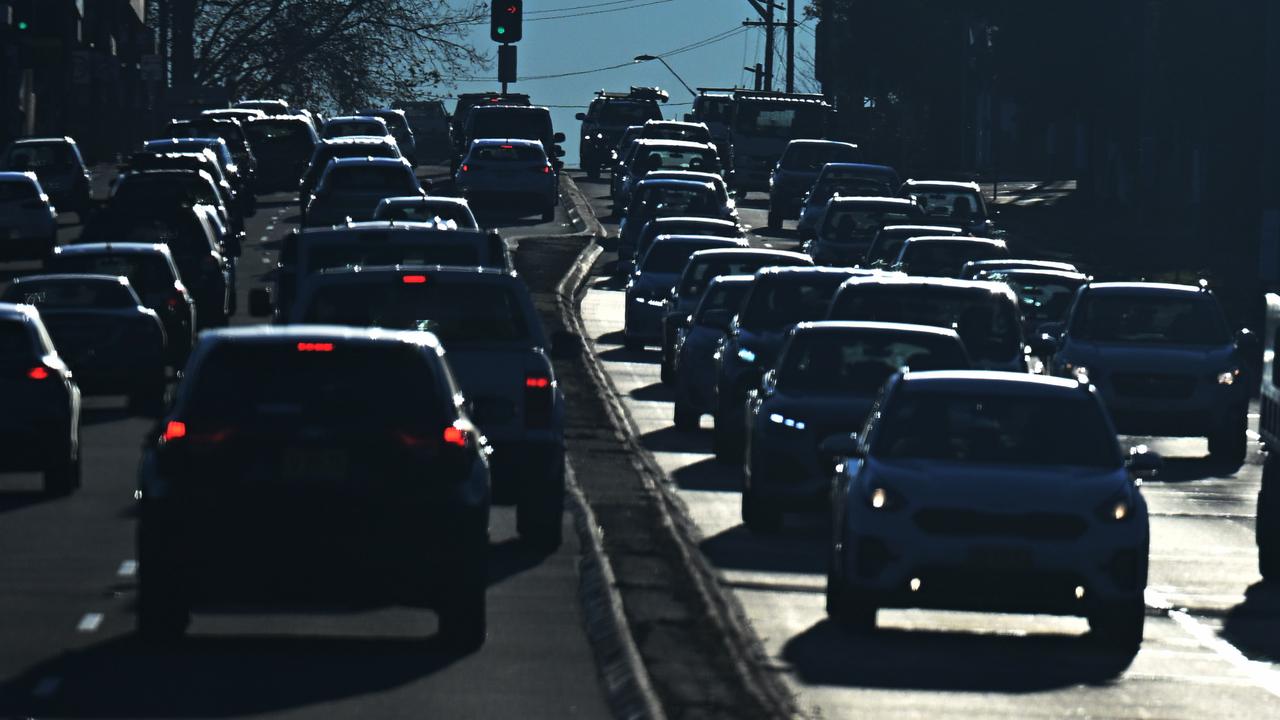
But the final form of what a road user charge would look like was not agreed to at the meeting of treasurers.
“The design of reforms should be as simple as possible and minimise administration and compliance burden,” Dr Chalmers said.
“We will ensure any changes are phased to enable the productivity, climate and consumer benefits of increasing electric vehicle uptake over the coming years.”
A road user charge was discussed at the federal government’s economic roundtable in Canberra in August.
A national model for such a charge has been on the cards after a 2023 High Court ruling found a state-based levy unconstitutional.
NSW Treasurer Daniel Mookhey said Friday’s discussion was a “constructive meeting”.
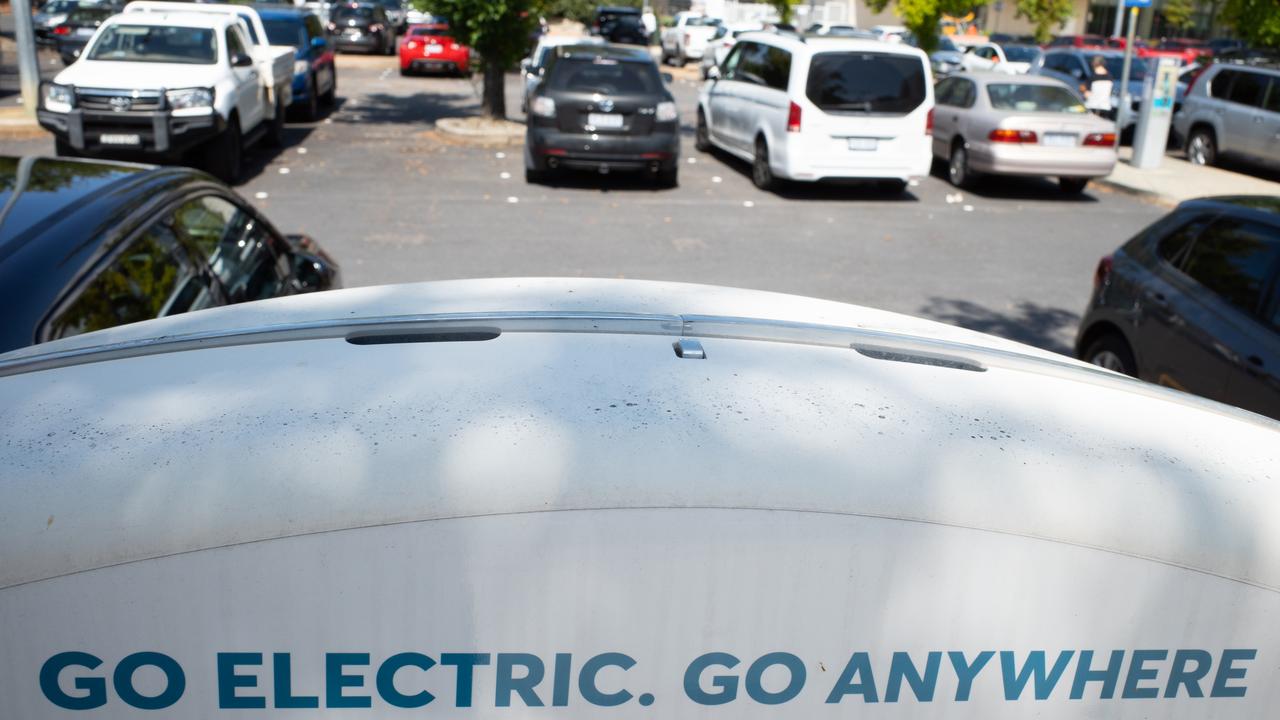
“It’s important that everybody who uses our roads are making a contribution to their upkeep and their maintenance,” he told ABC News on Friday.
“The states are forward-leaning on this and are eager to assist the Commonwealth and developing this reform and rolling it out as soon as we can.
“Nobody wants to discourage people from using electric vehicles. We think we can get the balance right.”
Opposition transport spokeswoman Bridget McKenzie said an equitable system was needed for drivers of EVs and other cars that ran on fuel.
“The sooner all road users contribute to fixing our roads, the safer our roads will be,” she said.
“Mr Chalmers’ proposed tax should not just be to fill Commonwealth coffers or fund charging infrastructure, which the foreign EV manufacturers should be helping roll out.”
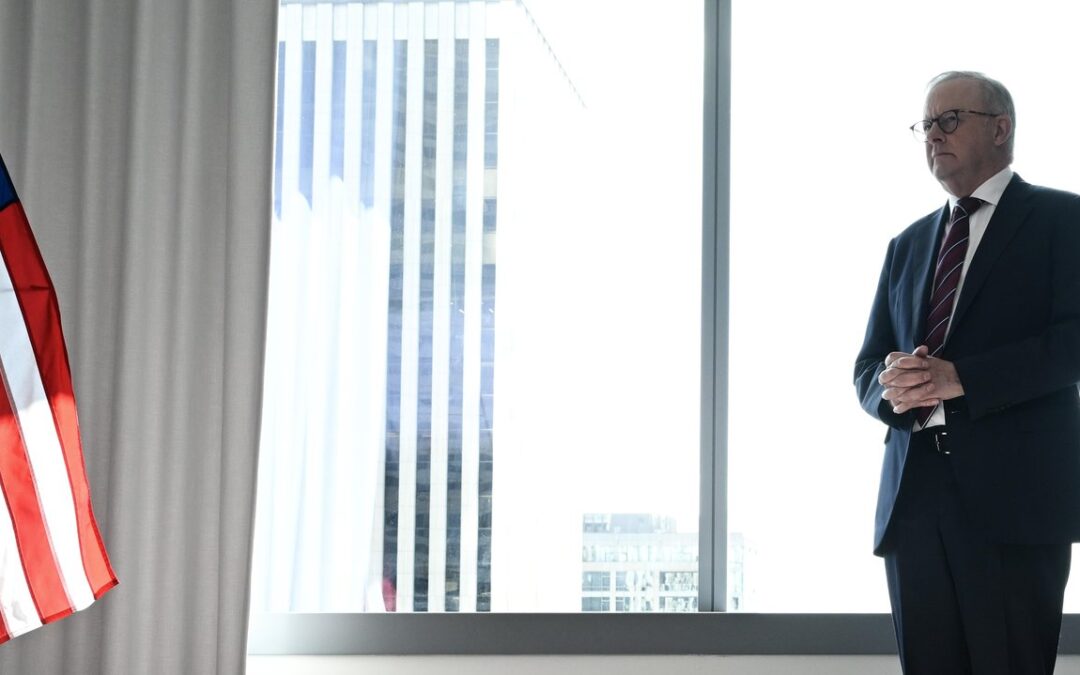
PM talks up ‘warm’ Trump phone call but no meeting set
Anthony Albanese has hailed a “warm and constructive” call with Donald Trump, but when the prime minister will come face-to-face with the US president remains uncertain.
Mr Albanese revealed the leaders held their fourth and latest phone call as Australia faces US pressure to loosen trade barriers and lift defence spending.
“We discussed our trade and economic relationship as well as areas for growth including critical minerals,” Mr Albanese said in a post on social media just before midnight on Thursday.
“We also discussed shared US-Australia security interests.”
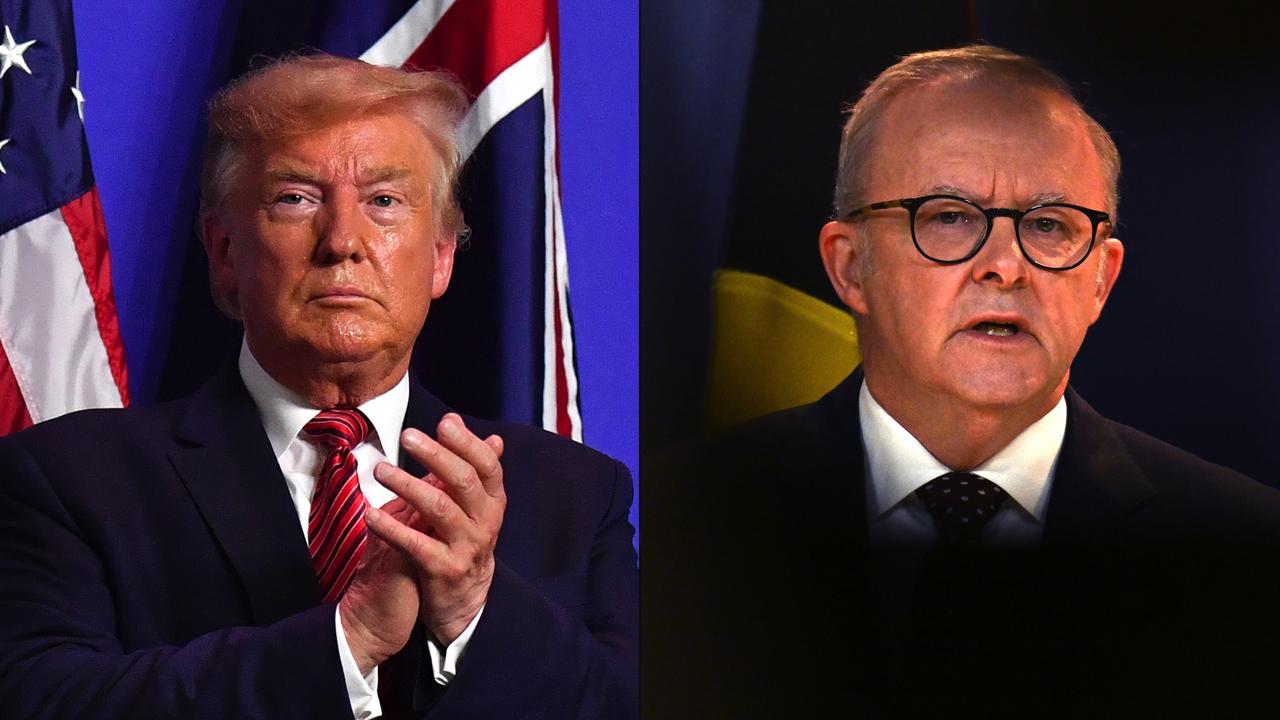
An Australian government readout of the meeting said Mr Albanese discussed economic co-operation, as well as trade and critical minerals important to both countries.
“Leaders also discussed the strength of our relationship and the importance of our shared security interests,” it said.
But there was no word on when the two leaders would hold their first face-to-face meeting, which Canberra has been pursuing since Mr Trump’s elevation to the presidency in November.
The two men were expected to have talks in June on the sidelines of a G7 summit in Canada but the meeting was cancelled after Mr Trump returned to the US early to deal with the Iran-Israel conflict in the Middle East.
The latest phone call took place just weeks before a United Nations general assembly meeting, which Mr Trump will also attend, at which Australia is expected to join the UK, France, Canada and others in pushing for the recognition of a Palestinian state.
The readout of the conversation did not say whether the leaders discussed the AUKUS alliance.
The US is reviewing the security agreement, under which Australia is expected to spend $386 billion to acquire nuclear-powered submarines, to ensure it aligns with Mr Trump’s “America first” agenda.
The US has been pushing Australia to raise its defence spending to 3.5 per cent of gross domestic product.
Australia was confident about the progress of the AUKUS review, Defence Minister Richard Marles said.
“This is a really good opportunity to look at how we can move forward more effectively and efficiently together as well,” he told reporters in Japan on Friday.
Australian ambassador to the US Kevin Rudd welcomed the leaders’ phone call, adding there was “lots going on” in the nations’ relationship and it was “going from strength to strength”.
Australia has been pushing the US to drop tariffs on its exports, although most of the goods it sends to the North American powerhouse are being taxed at a lower rate than those from rival nations.
Mr Trump imposed a baseline tariff of 10 per cent on all Australian goods to the US and a 50 per cent tariff on steel and aluminium.
The federal government has been arguing for their removal because of the US consistently running a trade surplus with Australia.
Efforts have been made to use Australian critical minerals as a bargaining chip in the negotiations.
Opposition trade spokesman Kevin Hogan criticised Mr Albanese for failing to lock in a face-to-face meeting with the US president.
“It’s been more than 300 days since the US election, yet the prime minister has not secured a face-to-face meeting with the president who has already met with over 30 other world leaders,” he said.
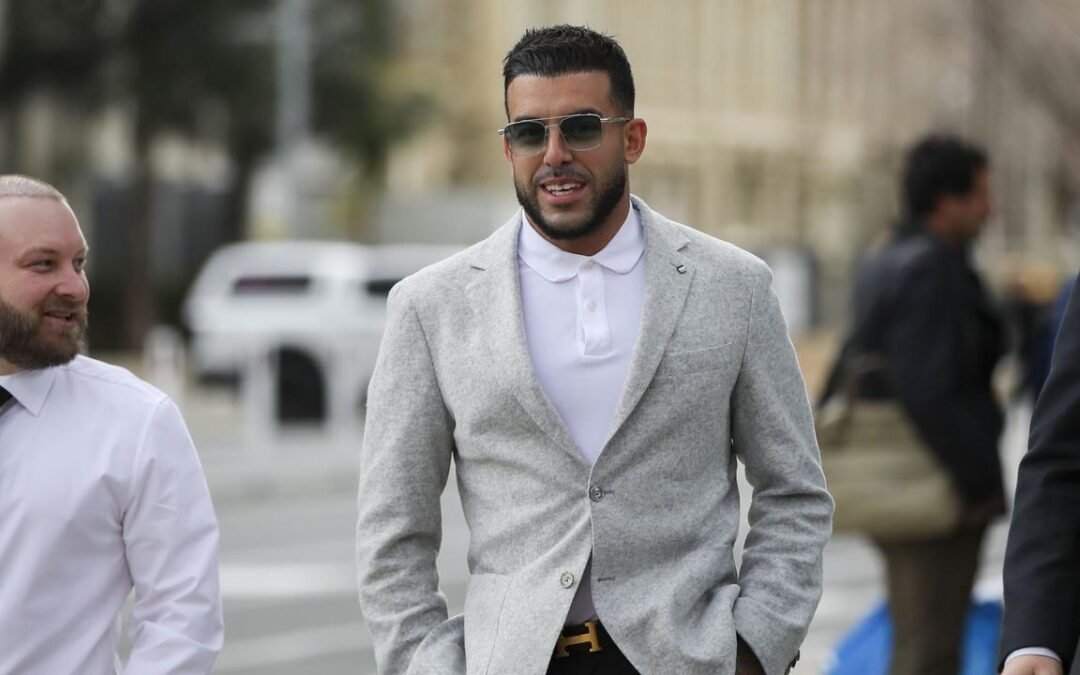
Authorities wanted to seize prizes, lottery trial told
Authorities wanted to take back “life-changing” prizes from trade promotion winners, a lawyer for high-profile businessman Adrian Portelli has told his trial.
Portelli, 36, of Melbourne, has faced a two-day trial in Adelaide Magistrates Court charged with nine counts of conducting or assisting in the conduct of an unlawful lottery in SA, while his business Xclusive Tech Pty Ltd, which trades under the name LMCT+, is charged with 10 counts of the same offence.
The charges, instigated by SA’s Consumer and Business Services, allege Portelli’s business did not hold a licence to conduct 10 separate lotteries between January 29, 2023 and May 16, 2024.
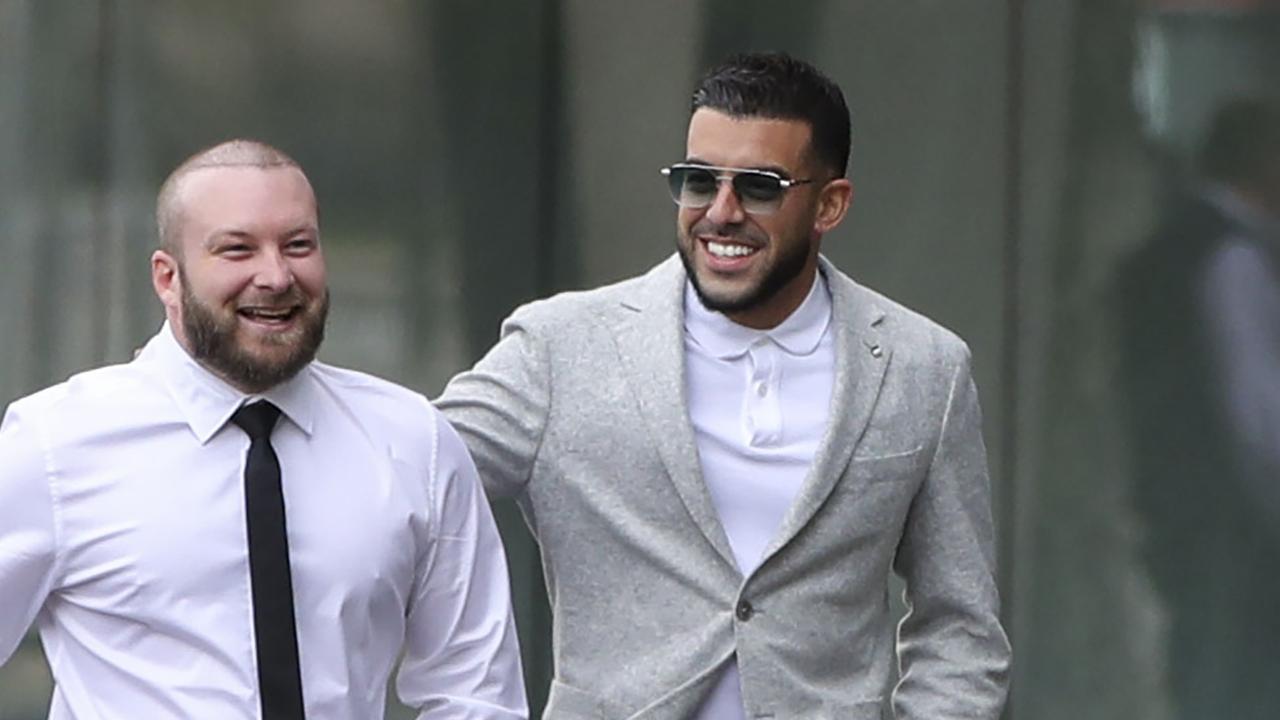
The court on Thursday viewed videos in which Mr Portelli staged draws for prizes including homes featured on the TV series The Block, luxury cars and boats and cash prizes.
In each case, the winners were from South Australia.
Murugan Thangaraj SC, for Mr Portelli, said he was “taken by surprise” by revised information outlined in the prosecution’s opening address.
“We understood from the original information that we were dealing with the standard lottery charge,” he said.
“With the revised information, the wording incorporated trade promotion lottery … the prosecution was clearly only about standard lottery and now it says it incorporates both.”
He said a key question was “does the revised information clearly include standard lottery and trade promotion?”
In a “cease and desist” letter sent to the company, Mr Thangaraj said “quite an extraordinary position is put by the commissioner: ‘I request that you contact any South Australians that have won prizes in the promotion to date to advise that the prize is void, as the operation of the lottery was unlawful’.
“So the commissioner is saying that any South Australian winners have to have their prizes returned … because you didn’t have a licence.
“To say that the life-changing impacts on those people, the South Australians, ought to be taken away from them, is the proposition that the commissioner has put.”
Stephanie Wilson, for the liquor and gambling commissioner, said the prosecution accepted Mr Portelli was previously granted trade promotion licences up until a certain point in SA but two applications for specific licences were refused by the commissioner in May and June 2021.
“(The prosecution’s) position is that these are unlawful lotteries, whether they are trade promotion lotteries or standard lotteries, and whether previous lotteries were licensed or not licensed, is not to the point,” she said.
Mr Portelli’s company offers members subscriptions to a “rewards club” that includes entries to win cars and properties.
Under SA law, any trade promotion lotteries with prizes exceeding $5000 need a licence to operate and entries must be free of charge.
Outside court, Mr Portelli said his company had given back more than $120 million to its customers.
“There were a lot of companies trying to replicate our business model because they saw the success of it,” he said.
“Some people weren’t doing the right thing and I think it was easier for them (CBS) to just to pull the plug.”
Each of the 19 offences carries a maximum penalty of $10,000.
Mr Portelli has said on social media that if he were convicted, he would “round it up to $200,000”.
Magistrate Melanie Burton has reserved her decision.
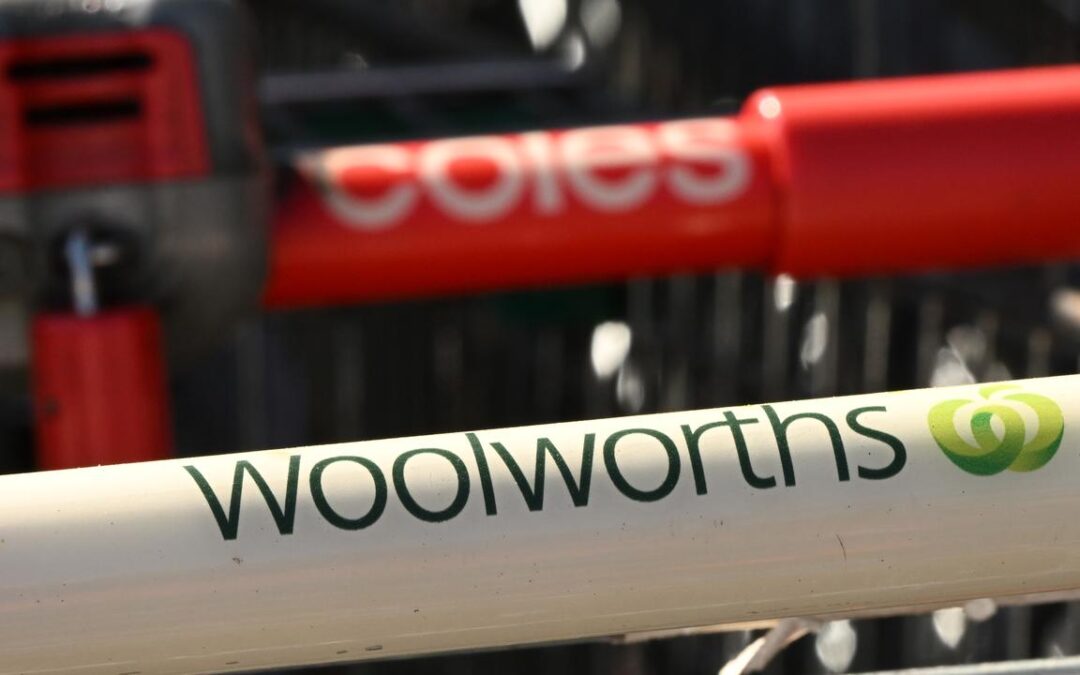
Coles, Woolies staff stuck in mass underpayment case
Allegations of rampant employee underpayment at Coles and Woolworths that affected almost 30,000 staff remain unresolved two years after a lengthy trial.
The Federal Court on Friday handed down a judgment on four cases against the supermarket giants after a watchdog argued there was tacit approval of illegal conduct in many stores.
Woolworths and Coles have repaid $330 million and $7 million respectively to managers who were not properly paid entitlements due to them as salaried employees.
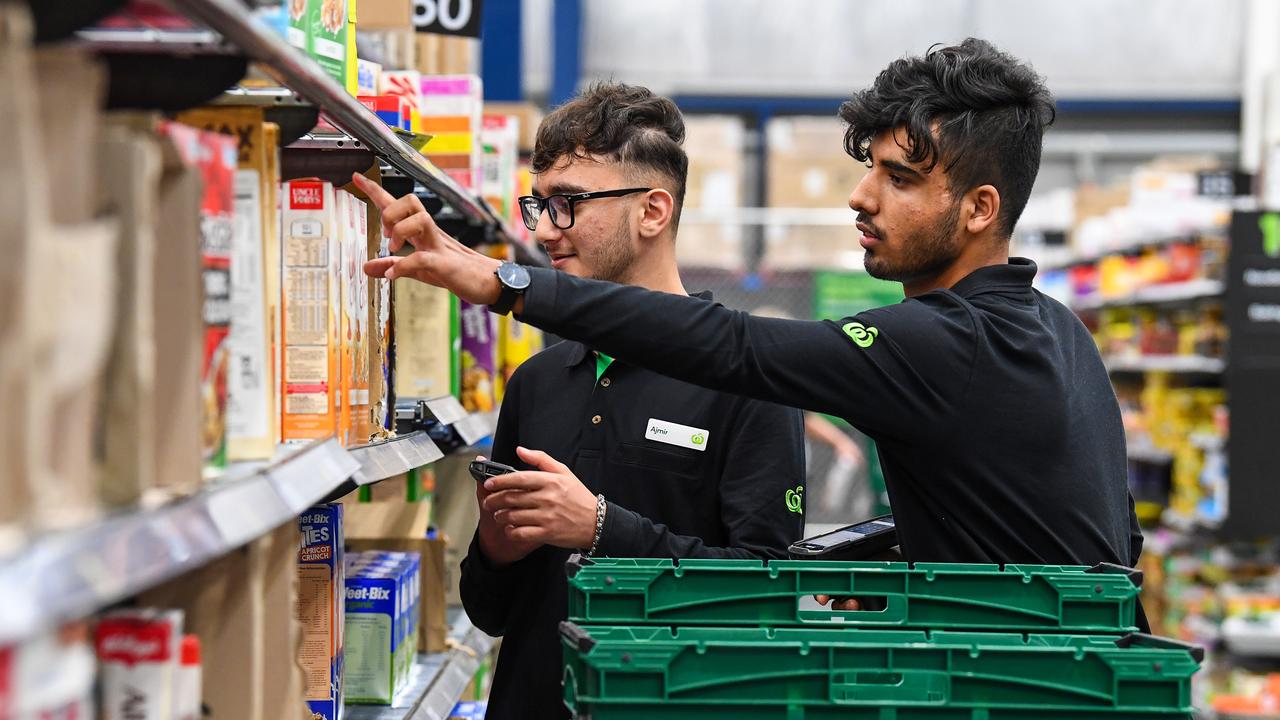
But the Fair Work Ombudsman and former grocery store employees behind two class actions say the market leaders should be forced to pay more.
The watchdog argued the relevant award set out a 38-hour work week but there was tacit approval to allow people to work overtime regularly.
It claims there were failures in the use of “informal” rosters, time off in lieu and record-keeping on overtime, penalties and allowances.
But Woolworths said some employees were authorised to work up to 45 hours a week and they were not required to do overtime beyond that.
Coles argued managers had autonomy over their hours and the estimates of working hours and days were overestimated by the Fair Work Ombudsman.
Justice Nye Perram on Friday found both supermarket chains did not comply with their obligation to keep accurate employment records.
He noted Coles failed to operate an overtime system for managers and its clocking records were unreliable.
One of the lead litigants, who mostly managed the customer service desk, likely worked on days when she was not rostered so roster sheets were not indicative of the hours worked, the judge said.
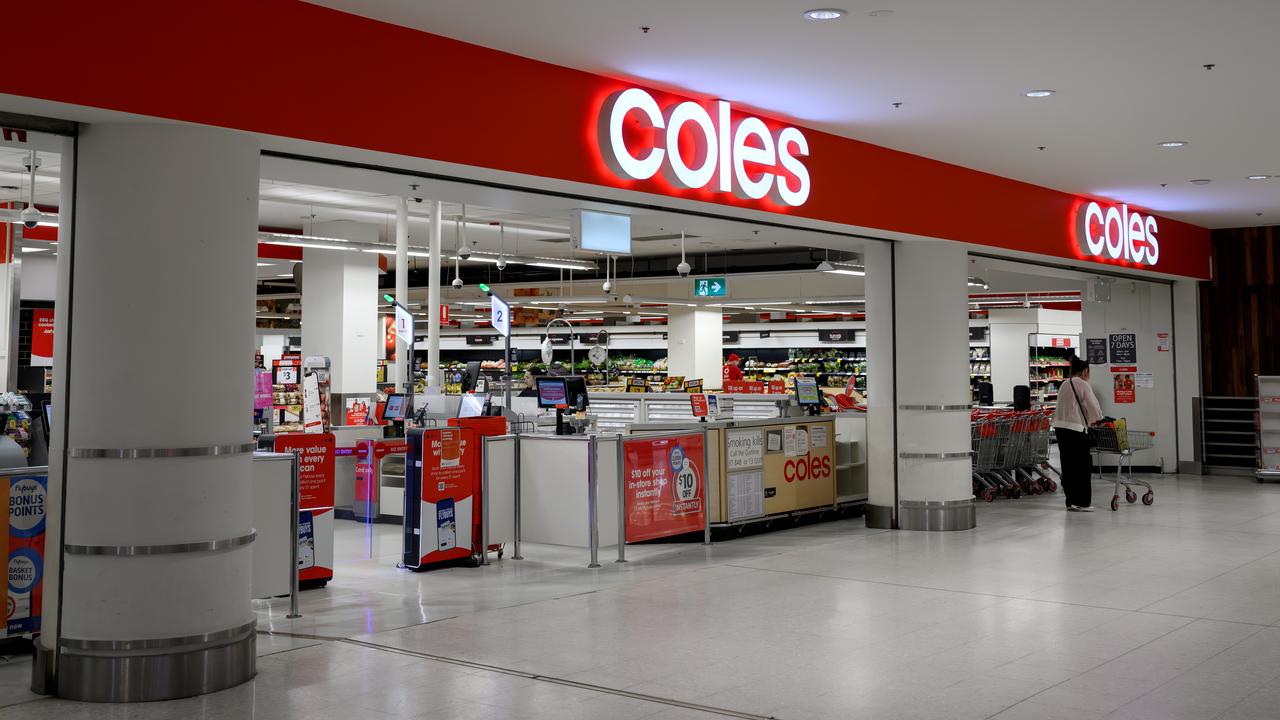
Her phone records could better demonstrate when she was at work, the judge found, while dismissing Coles’s arguments she had not missed unpaid meal breaks.
The woman, whose pay was docked for Coles-branded clothing, was also entitled to a clothing and laundry allowance.
But the judge used his 82,000-word judgment to criticise all sides, including the Fair Work Ombudsman, for making the case “unacceptably complex”.
The parties mainly wanted answers about how the general retail award applied but got bogged down presenting myriad case studies to the court.
The ombudsman’s case against Woolworths involved 32 managers at five locations across Sydney, Melbourne and Brisbane from June 2015 to September 2019.
The case against Coles involved 42 managers, some of whom were employed in multiple shops, from 2017 to 2020.
“Whilst I would not wish to (be) definitive about how litigation of this kind might be handled in the future, I am confident that they should not be handled the way these four cases were,” Justice Perram said.
“This should not be done again.”
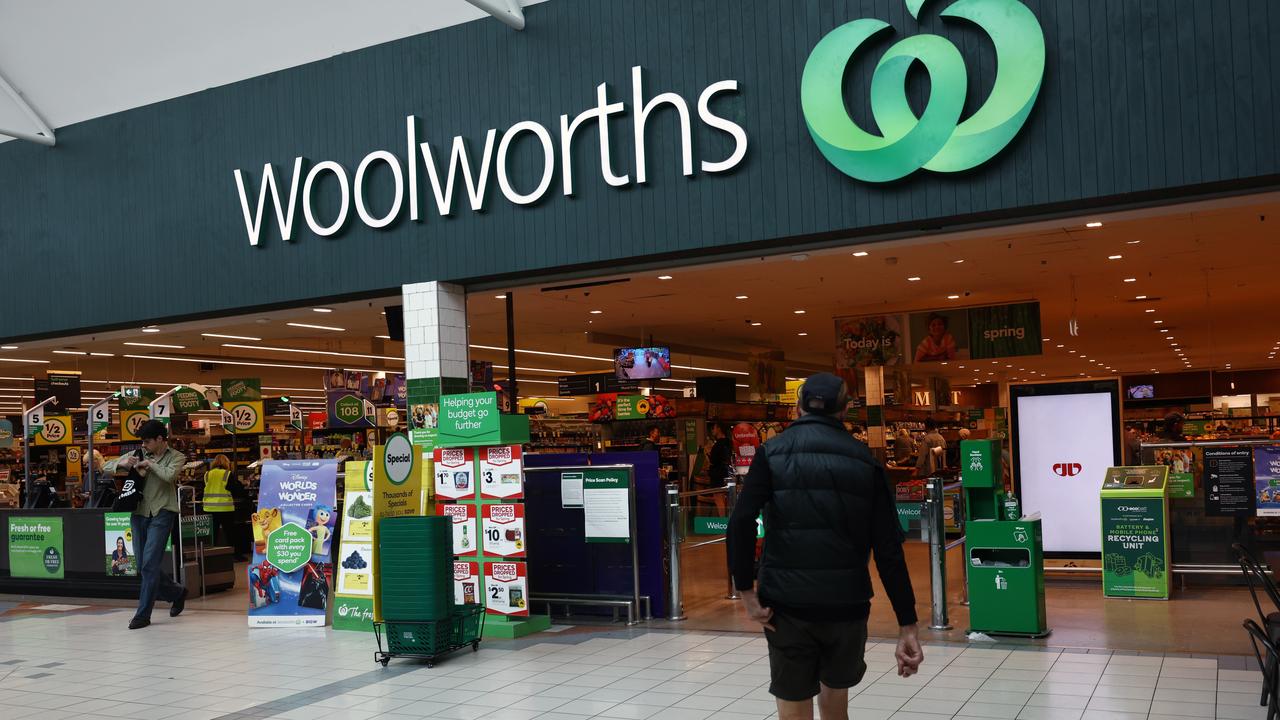
He will conduct a case management hearing in October to determine the next steps and compensation for the affected 27,700 employees.
In a statement, Coles said it hoped Justice Perram’s judgment would provide “much-needed clarification” on the industry award and Fair Work Act.
“We (have) introduced new processes and safeguards to ensure this won’t happen again,” a spokesperson said.
“We again apologise to our team members who were affected.”
Woolworths pointed to the remediation paid to affected employees and said further payments would need to be scrutinised carefully.
“We are focused on resolving these underpayment issues,” chief executive Amanda Bardwell said.
“We are committed to ensuring that our team members are paid correctly.”
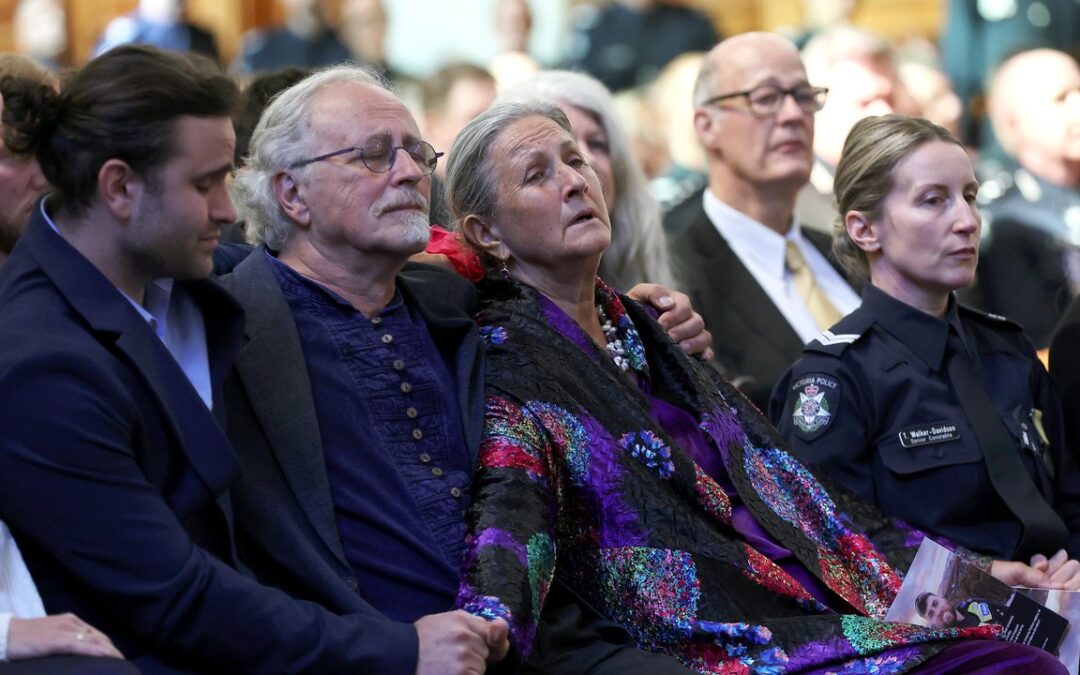
‘My superhero’: touching funeral tributes for slain cop
A smiling protector with an enduring Batman fascination, a fallen officer has been sent off as a real-life superhero.
Senior Constable Vadim de Waart-Hottart, 34, was honoured by family, friends and leaders in a private funeral at the Victoria Police Academy on Friday.
An estimated 3000 mourners turned up, triple the number anticipated.
The slain policeman’s mother and father, Carolina de Waart and Alain Hottart, travelled from Belgium for the solemn service.
Brother Sacha de Waart-Hottart, who lives in Switzerland, said he could spend hours talking about his brother but only spoke briefly for fear of breaking down.
When they were kids, the future officer would gather up every stuffed animal he could find and bring it to his baby brother’s crib and hop in.
His blue-eyed brother Vadim was a “ray of sunshine”, only ever wanting to make people happy and laugh.
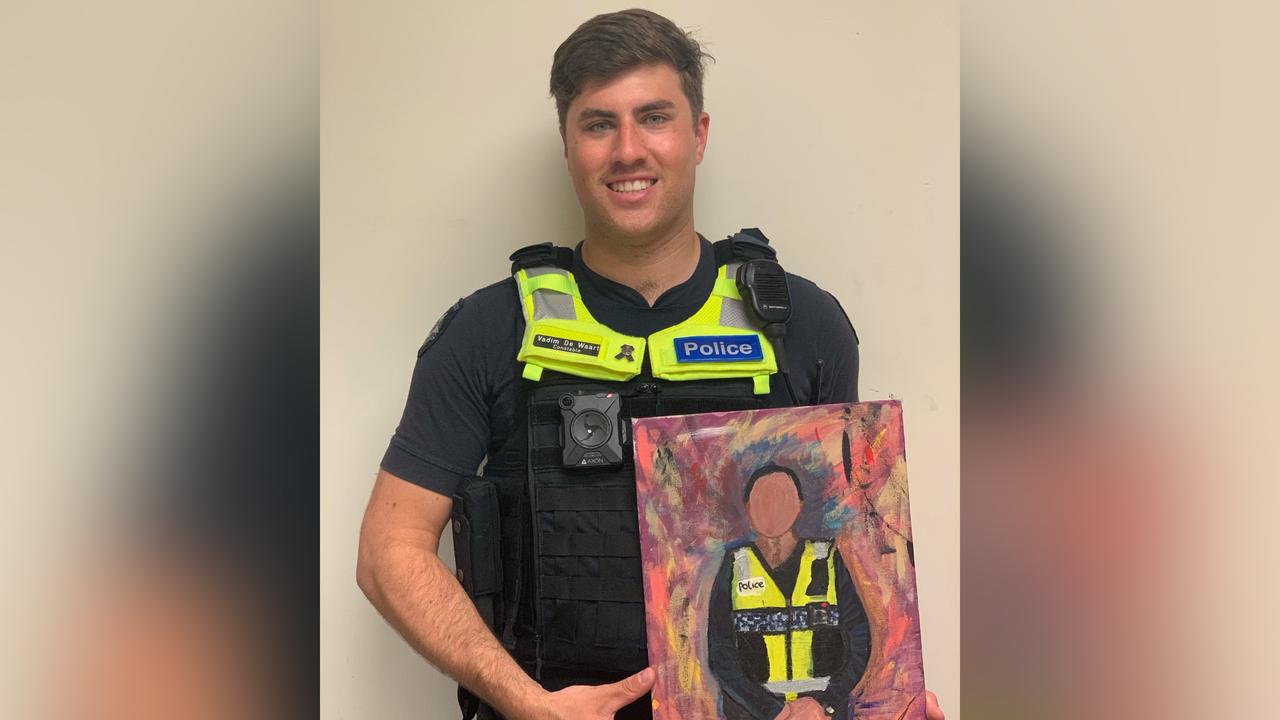
“He was my very own superhero, he was my Batman,” Mr de Waart-Hottart said.
“Then when we grew up and I didn’t need his protecting anymore, my brother found 23,000 new brothers and sisters in blue to keep protecting.”
Prime Minister Anthony Albanese, Chief Commissioner Mike Bush, Victorian Premier Jacinta Allan and Police Minister Anthony Carbines were among the sea of navy blue uniformed crowd.
A table was set up in the chapel with medals and a small statue of Batman, a favourite of Sen Const de Waart-Hottart’s child and adult years.
His cousin Jeremy Dellavedova read out a statement on behalf of the young officer’s mother.
“Our beautiful, kind, wise, joyful boy. Taken from us, who dearly loved him,” he said.
“Vadim is everywhere now, in the ether, in the divine, in the light.”
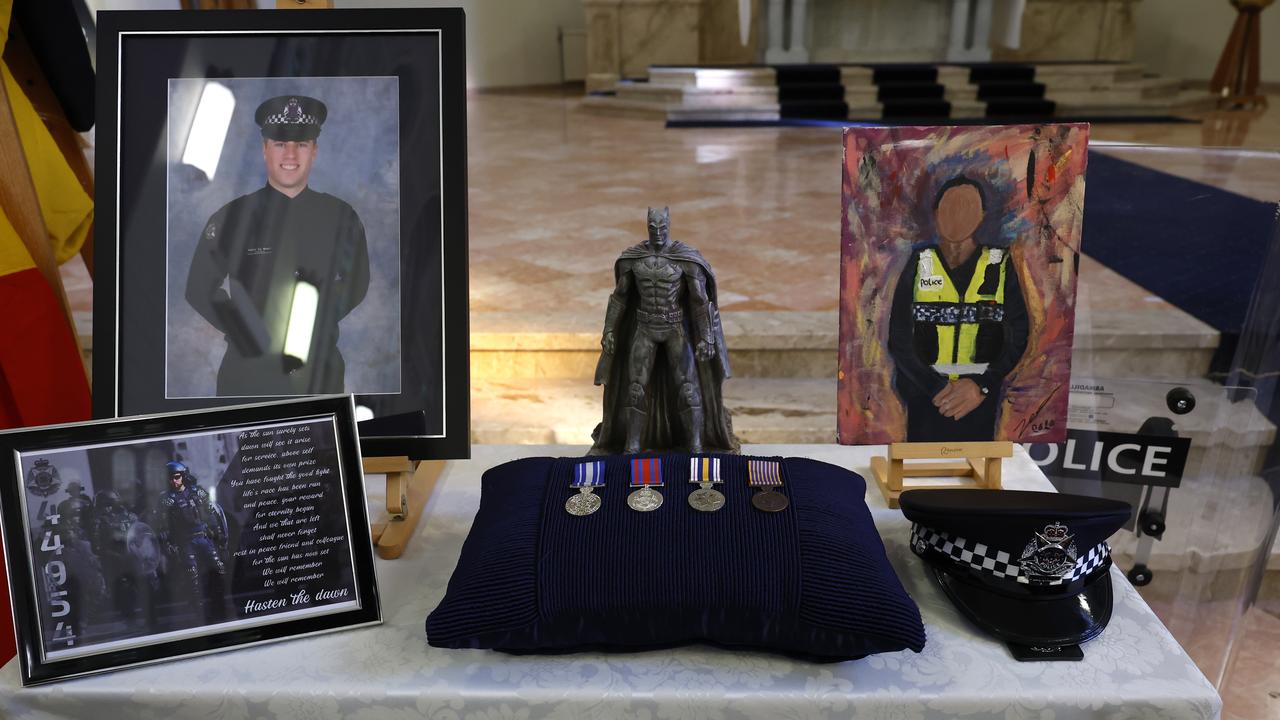
Constable Tali Walker-Davidson shared a house with Sen Const De Waart-Hottart when he moved from Maryborough, in regional Victoria.
“Every time before he went to bed he would always say ‘goodnight Tali, sweet dreams’,” she said.
He found peace in the little things in the backyard, laying in the hammock with Const Walker-Davidson’s dog by his side, reading a book, doing yoga and meditating.
Skype calls with his parents lasted hours and nothing was off-limits, she said.
Sen Const de Waart-Hottart moved out in June 2023 after buying an apartment, but the pair stayed close.
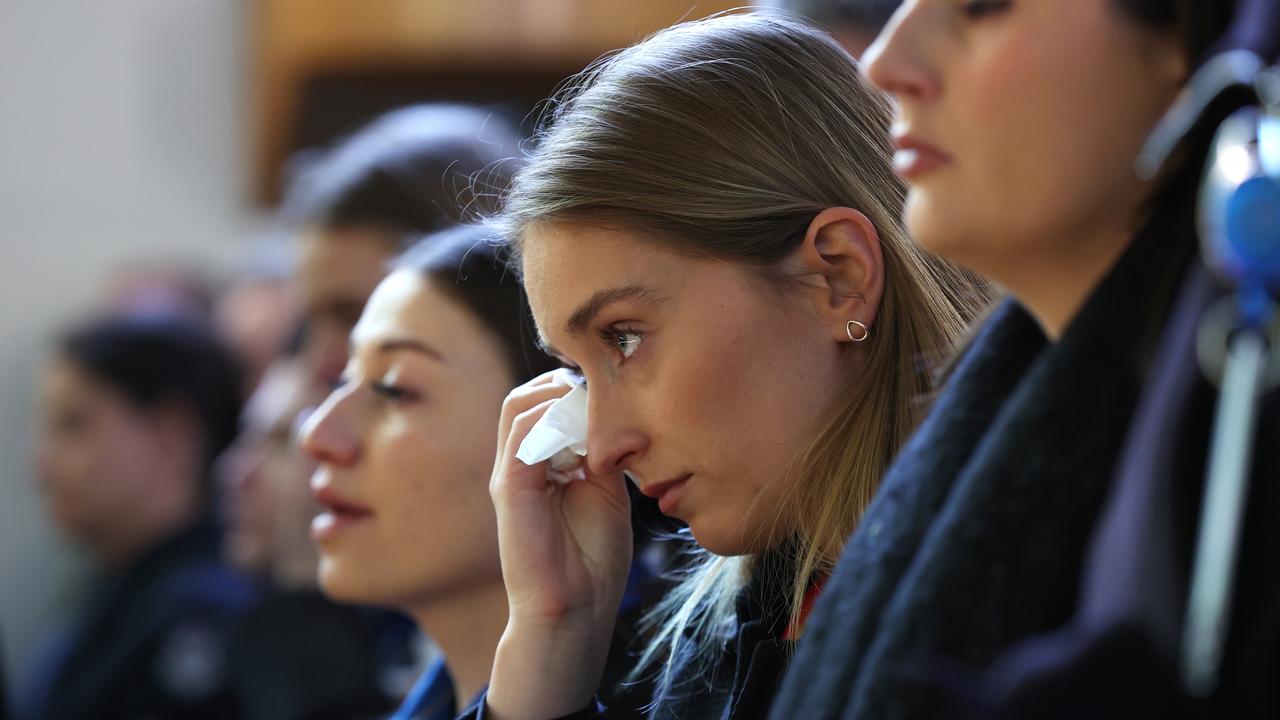
“He wasn’t just a colleague, he was my friend and he was my brother,” Const Walker-Davidson said.
“I love you babe.”
A near 10-minute photo montage captured the essence of Sen Const de Waart-Hottart’s life.
From baby photos and skiing with family, to building a new life in Australia surrounded by new friends, the images painted a picture of who he was.
They showed him taking selfies with a pushbike, riding his motorbike, smiling with friends and proudly wearing a Batman T-shirt.
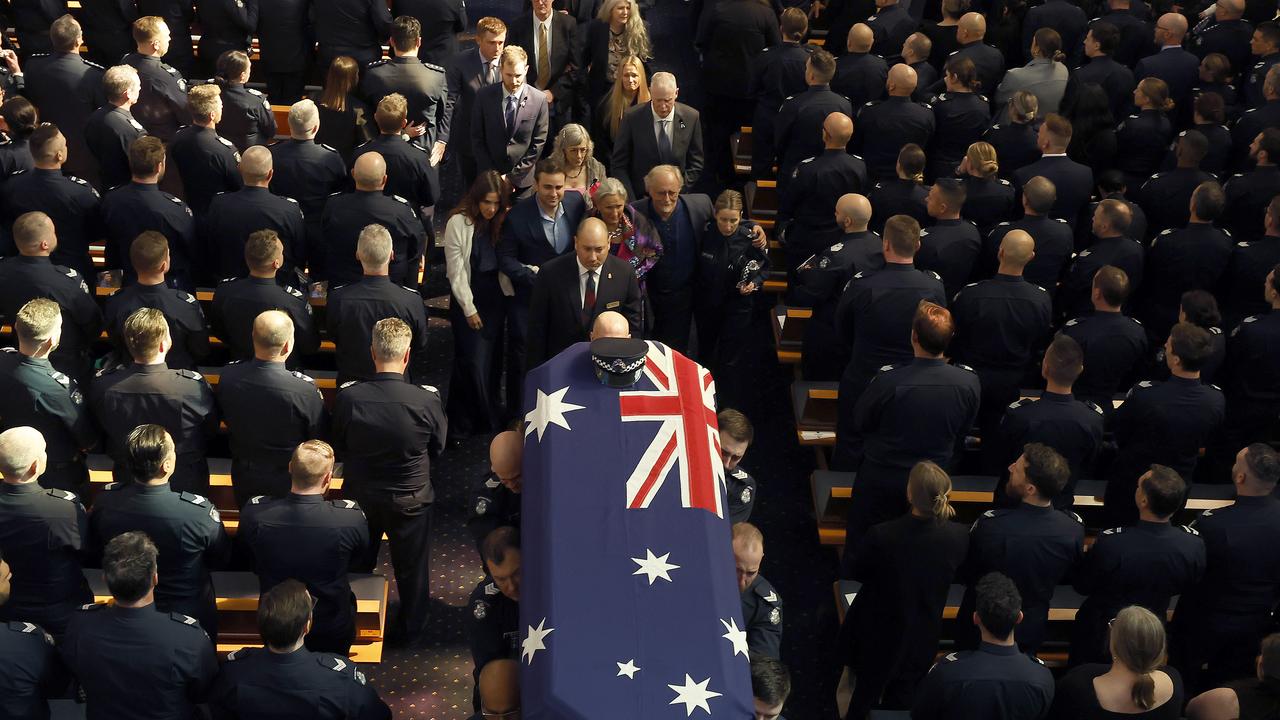
Sen Const de Waart-Hottart and colleague Detective Leading Senior Constable Neal Thompson were killed during a violent confrontation with Dezi Freeman on August 26.
The pair were among 10 officers serving a warrant at a property in Porepunkah, about 300km northeast of Melbourne.
Another officer was seriously hurt.
Freeman, 56, fled into bushland and remains on the run.
Sen Const de Waart-Hottart was posthumously awarded the Victoria Police Star, recognising employees who are killed or seriously injured.
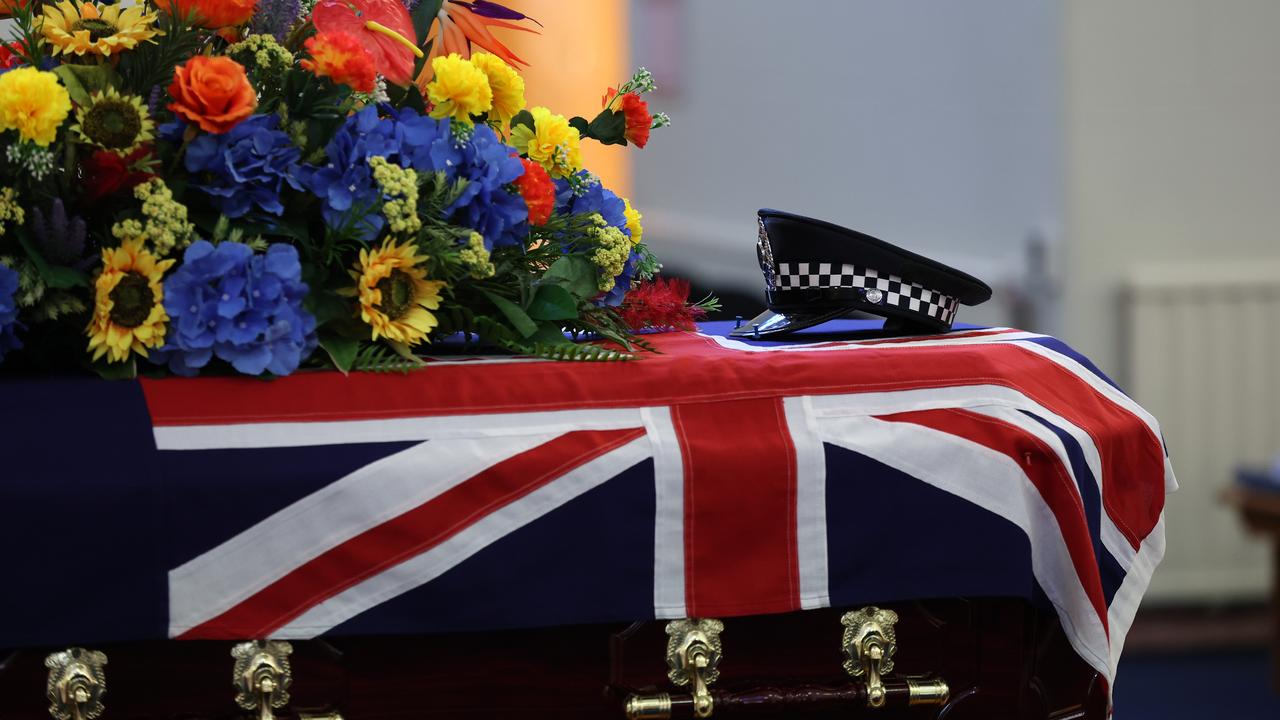
He was also bestowed the National Police Service Medal, National Medal and Victoria Police Service Medal.
The Sound of Silence played as his coffin was carried out of the on-site chapel, with his family holding each other while following.
The police air wing performed a flyover as more than 1000 officers lined the block for a long guard of honour for the hearse carrying his body, which will be cremated.
Sen Det Thompson will be farewelled with full honours on Monday.
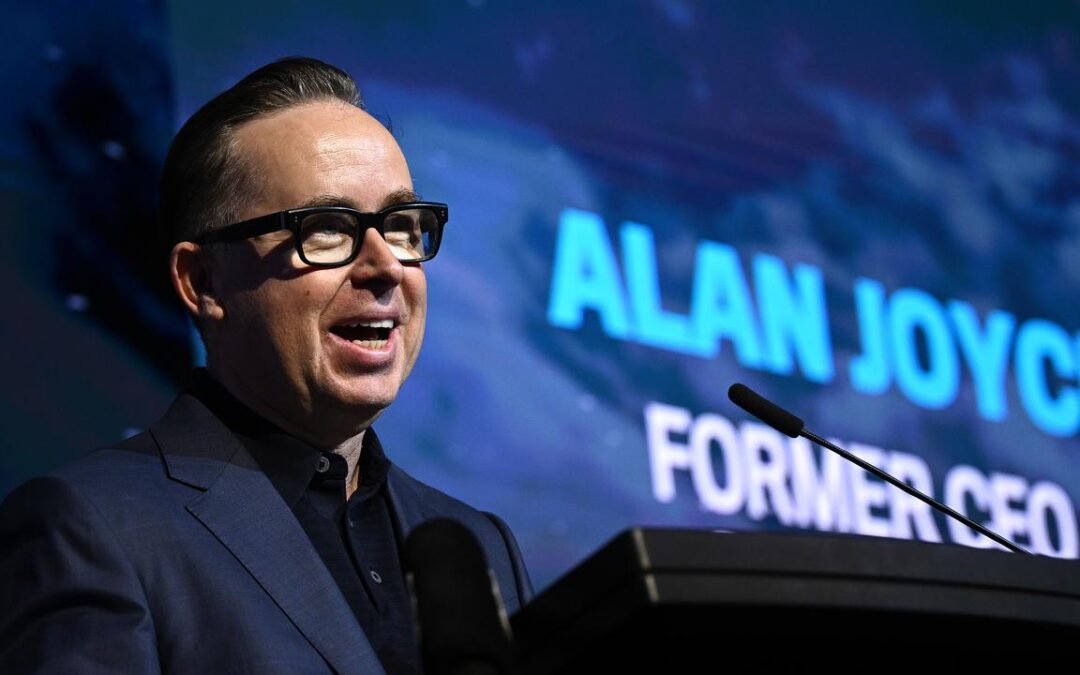
Joyce scores final multimillion-dollar Qantas payout
Former Qantas chief executive Alan Joyce has received his last payout from the airline, receiving $3.8 million worth of shares after his long-term performance plan vested.
Mr Joyce had his pay cut in August 2024, with the board reducing his potential renumeration by $9.3 million amid a string of public relations blunders that saw the reputation of Qantas take a significant hit and led to him stepping down six weeks ahead of schedule.
But the board allowed Mr Joyce to keep his long-term incentive plans for 2023-2025, which have now vested, the airline disclosed on Friday.
The renumeration is higher than it would have been thanks to the strong performance of Qantas shares, which have gone from $4.47 three years ago to $10.74 as of June 30, having more than doubled since current CEO Vanessa Hudson took over.
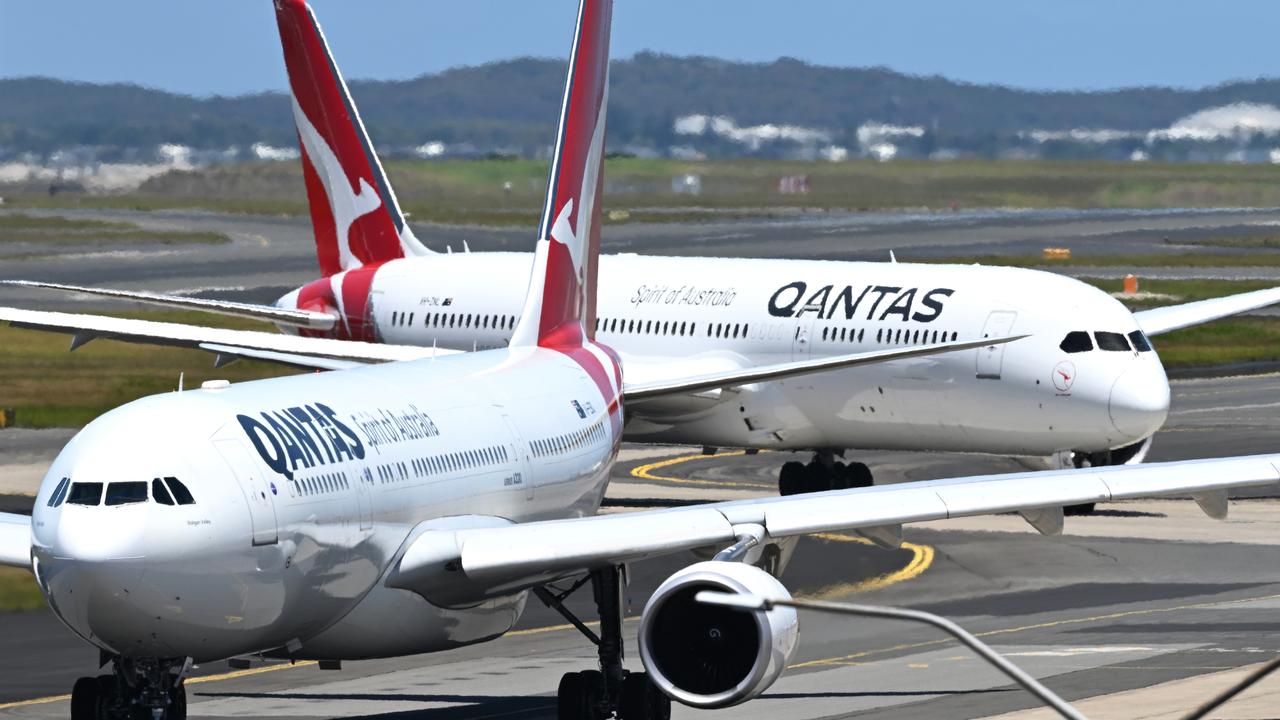
Ms Hudson meanwhile received $6.3 million in renumeration in 2024/25, up 43 per cent from the $4.4 million she received the previous financial year.
Ms Hudson and the rest of the senior executive team had their short-term bonuses cut by 15 percentage points as a result of the hack of customer data detected in late June, when 5.7 million customer records were stolen from a third-party vendor.
This equates to a $250,000 reduction for Ms Hudson.
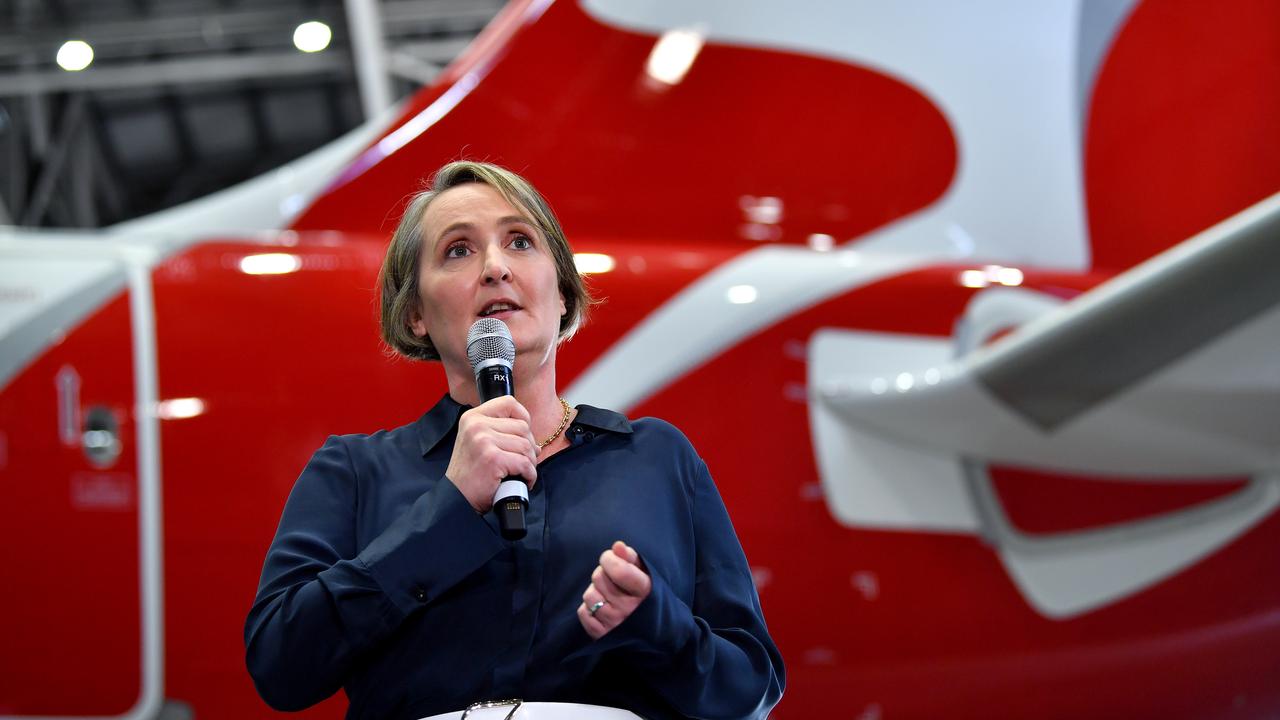
Qantas Group chairman John Mullen said the team’s bonus reduction “reflects their shared accountability, while acknowledging the ongoing efforts to support customers and put in place additional protections for customers.”
Mr Mullen added that overall Qantas had an outstanding year, with improved operational performance, higher customer satisfaction and employee engagement and a $2.39 billion underlying profit.
It had rewarded around 25,000 team members $1,000 in shares, in addition to $1,000 “thank you” payments they received in December.
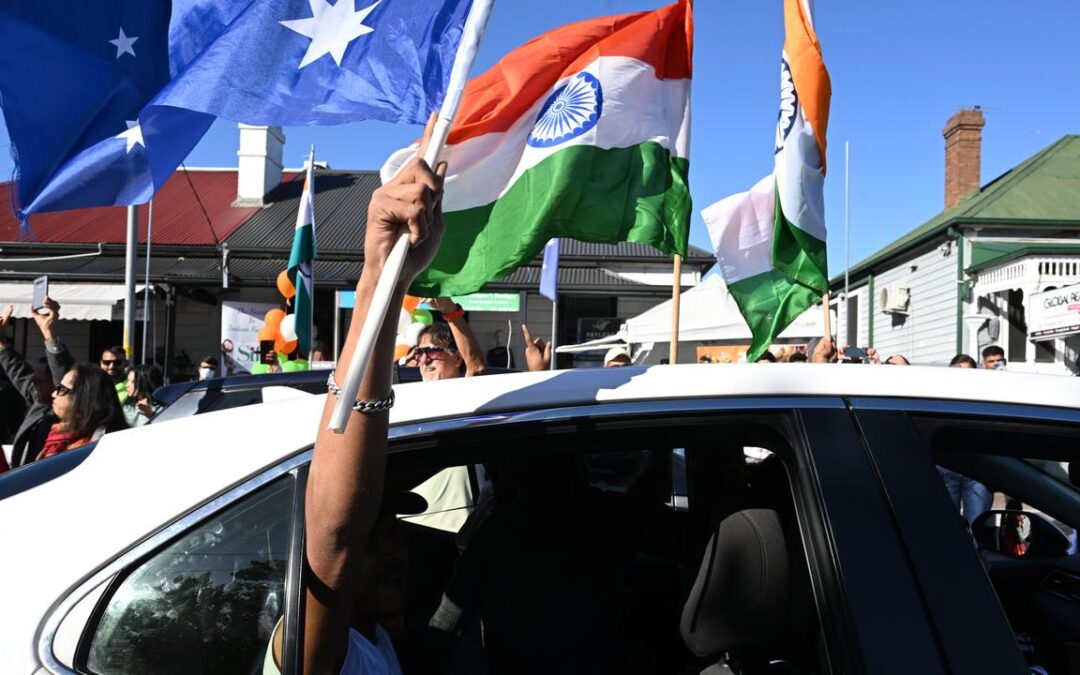
Senator’s remarks on Indian migrants ‘electoral poison’
A high-profile senator’s inflammatory criticism of Indian migration risks alienating culturally diverse communities across the country, a political analyst warns.
Liberal MPs and senators are distancing themselves from Jacinta Nampijinpa Price’s claim that Labor is accepting migrants who “support their policies, their views and vote for them as well.”
Speaking on the ABC on Wednesday, Senator Price singled out “the Indian community” as an example.
Shortly after, she appeared to walk back her comments before later saying she didn’t think she had anything to apologise for and blaming the interviewer for bringing up the topic.
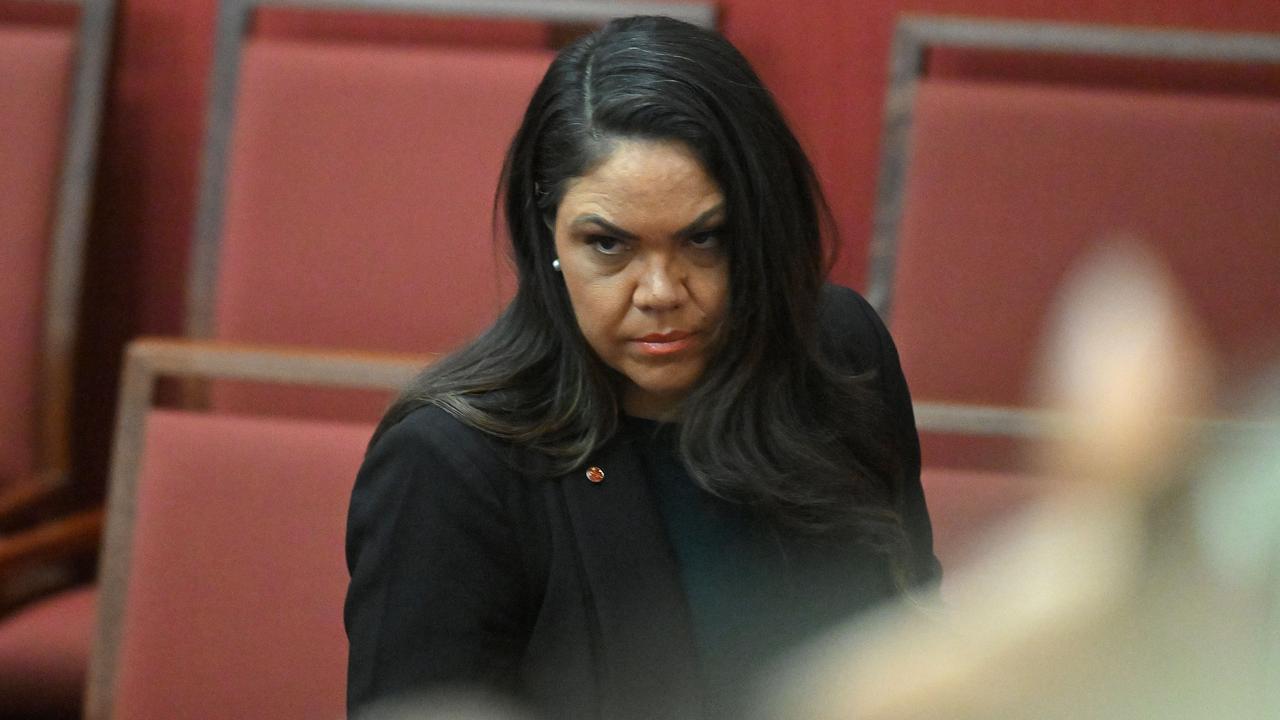
Australian National University academic Frank Bongiorno, who specialises in political history, said the firebrand senator’s remarks were “very damaging to the Liberal brand” at a time when the party was already struggling for votes.
“All the indications are that it’s electoral poison,” he told AAP.
Professor Bongiorno said the comments were likely to have a lasting impact on how migrant communities saw the coalition.
“Those impressions stick and they can actually stick for years,” he said.
“Many (migrants) do have quite conservative cultural values that probably are more in keeping with ideas that you find within the Liberal and the National party but … there’s a sense this is a place that’s hostile to them.”
Liberal members have been playing down the comments publicly and privately, describing them as unhelpful and not representative of the broader party’s position.
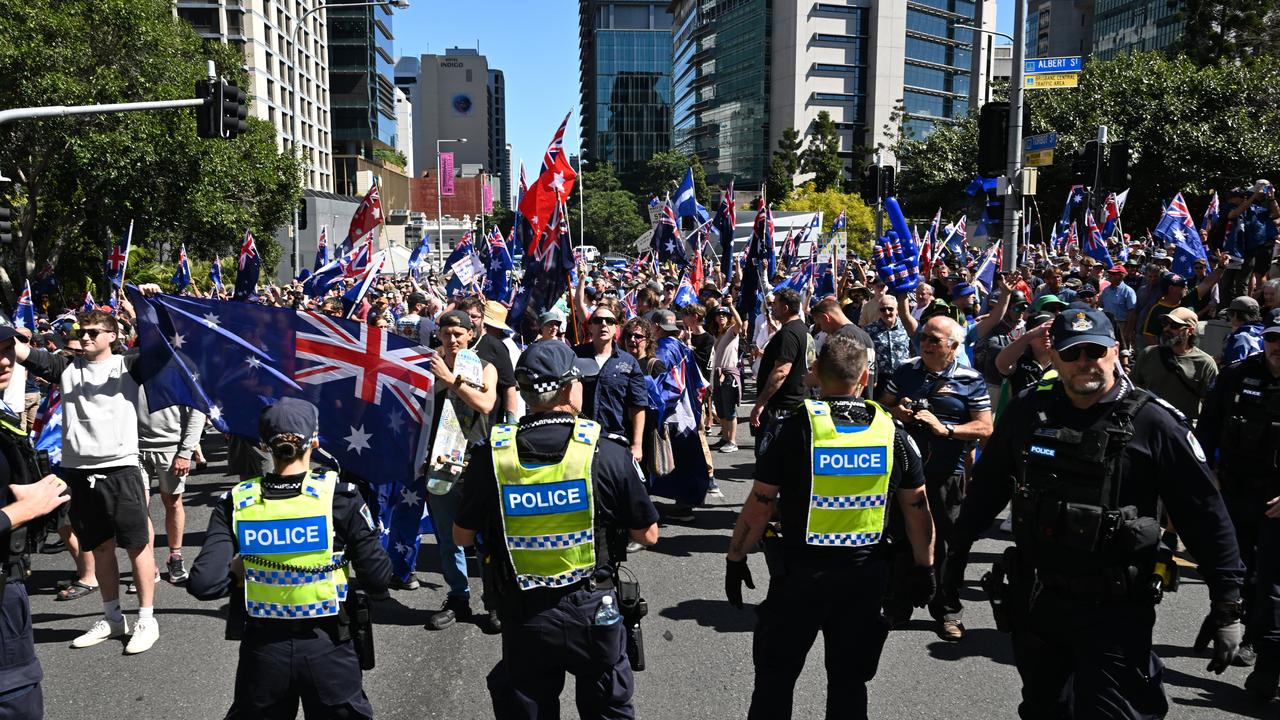
The debate follows multiple anti-immigration rallies over the weekend, some of which featured flyers carrying anti-Indian rhetoric.
The coalition, which tried during its disastrous election campaign to court members of the Indian diaspora, is now facing anger from members of the community.
They argue the remarks undermine Australia’s non-discriminatory immigration policy and risk eroding public trust.
“She should at least apologise, people make mistakes right?” Sikh Association of the Northern Territory president Harpal Singh said.
“But the problem is the timing.”
Violent and widely condemned anti-immigration rallies around the nation have stoked debate about Australia’s immigration policy.
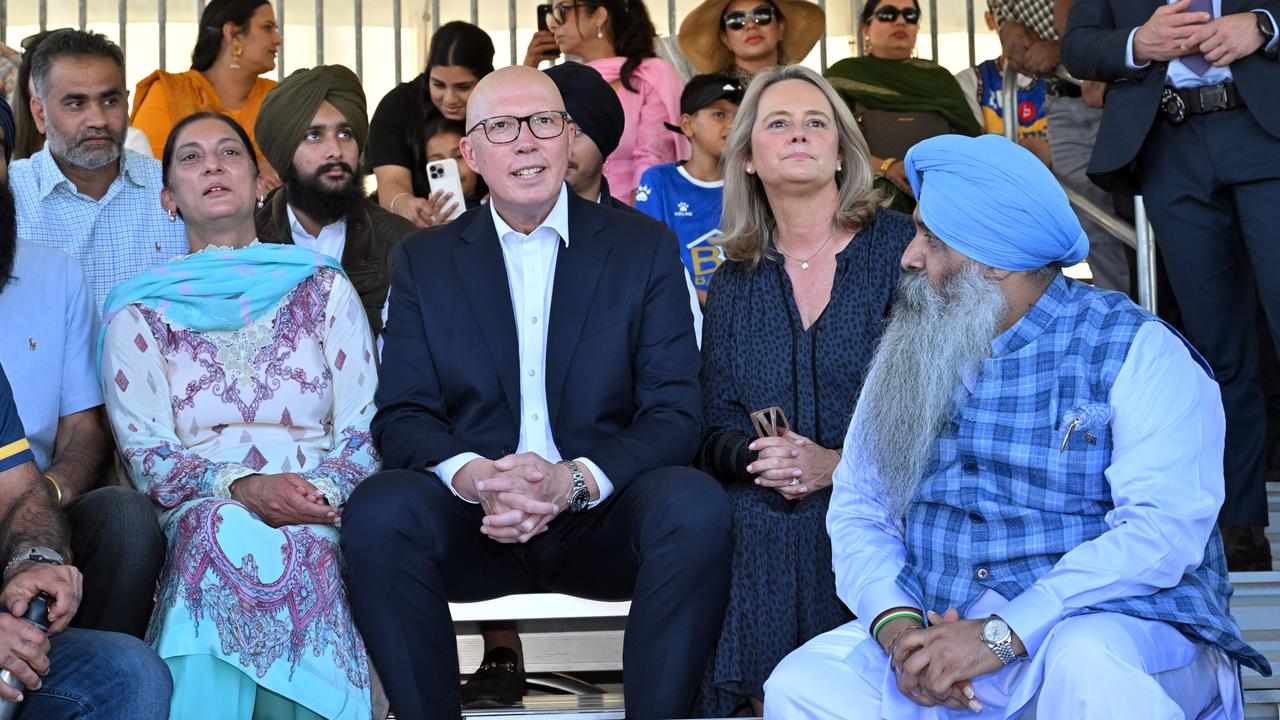
“Just after those protests, saying something like this, it just alienated people from Indian ethnicity,” Mr Singh said.
“It’s a shame.”
A former president of the Indian Cultural Society of the Northern Territory said the NT senator’s comments did not reflect widely held views.
“I don’t know what motivated her to pick a particular community group … it might have been that her thoughts were misdirected or she wasn’t advised properly,” Bharat Desai said.
Migration expert Anna Boucher said people were more likely to vote on the basis of class than ethnicity.
“When the population is so multicultural, a lot of people are going to take offence at a suggestion that the migration policy is driven by race, when we’ve had a non-discriminatory program since the 1970s,” the University of Sydney associate professor said.